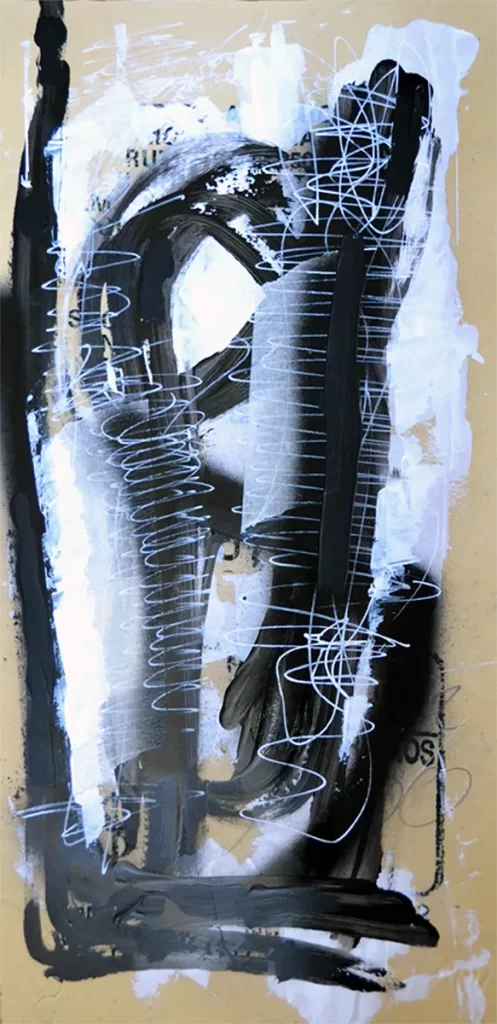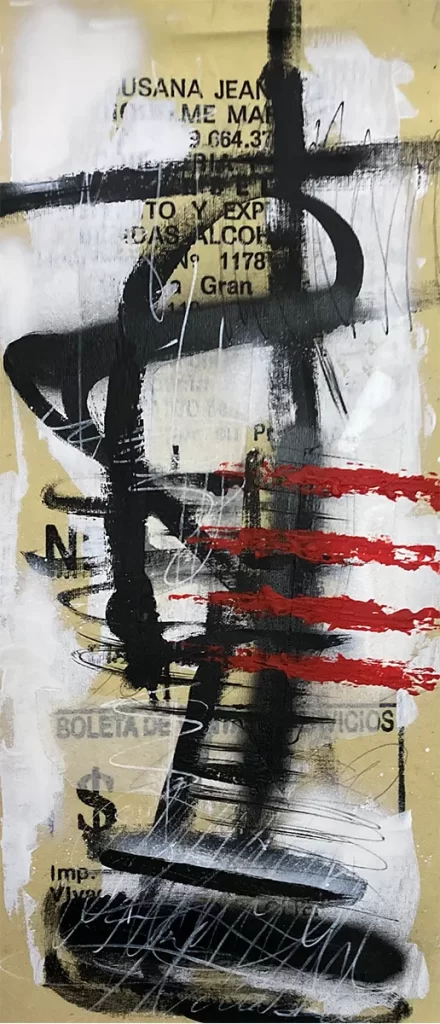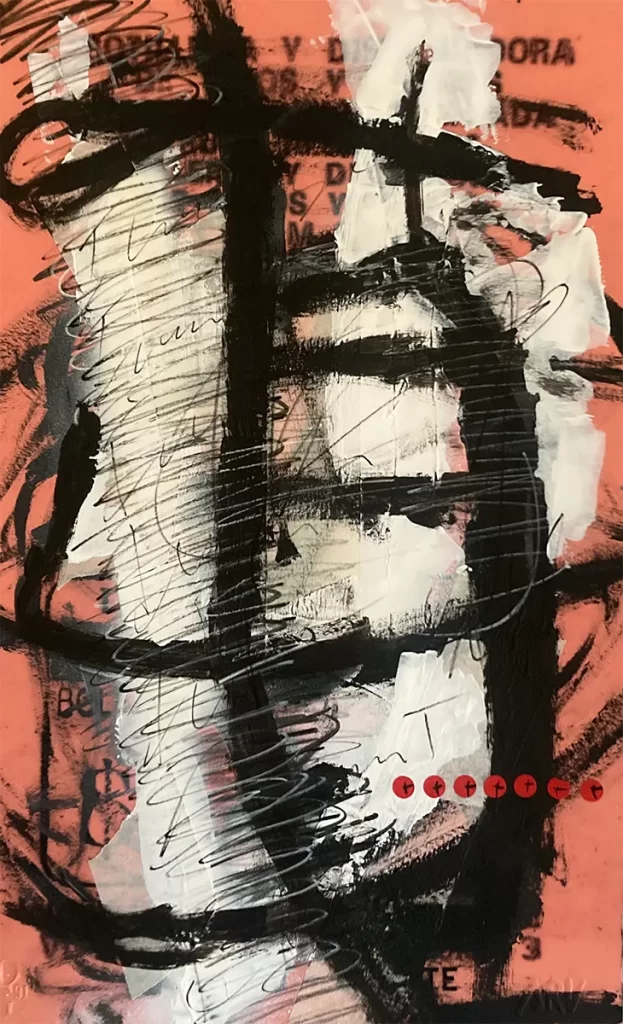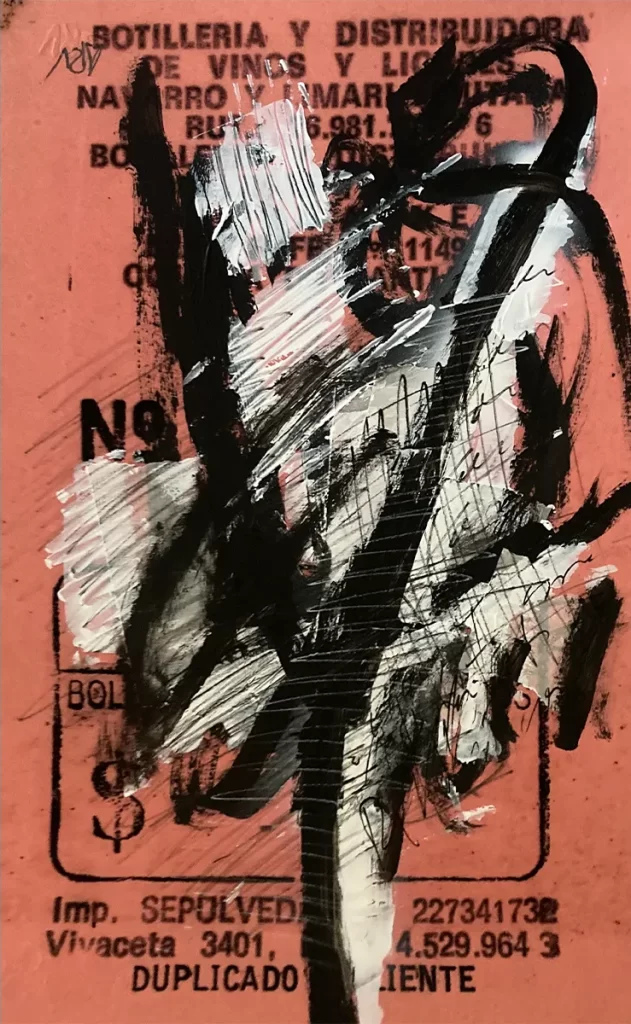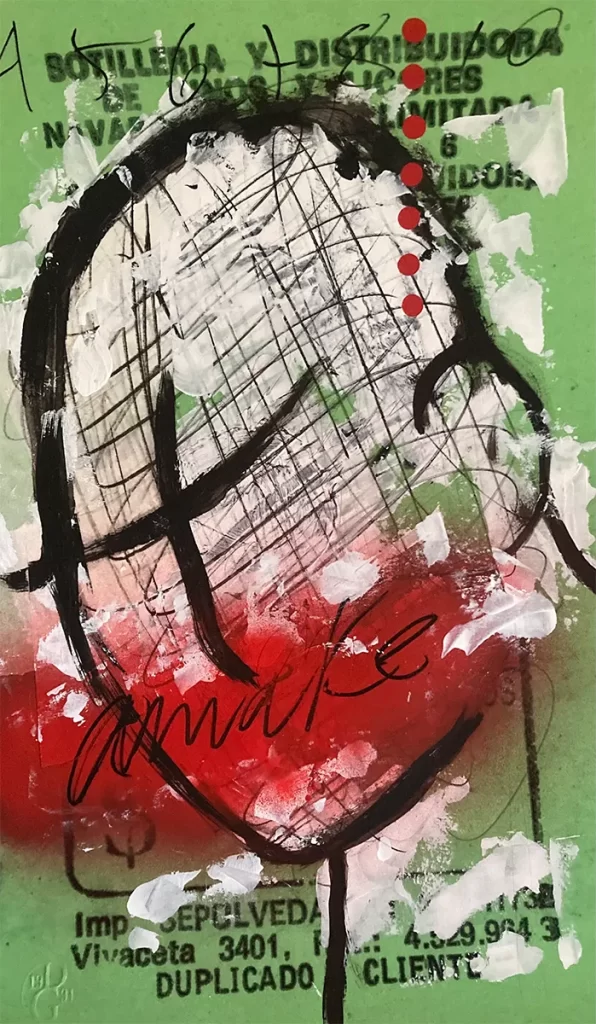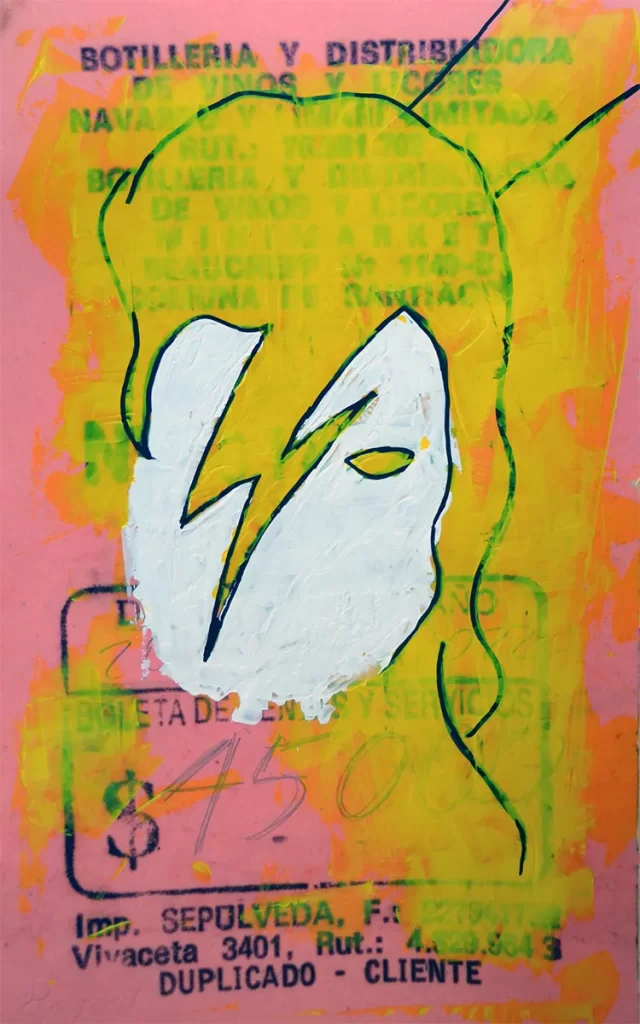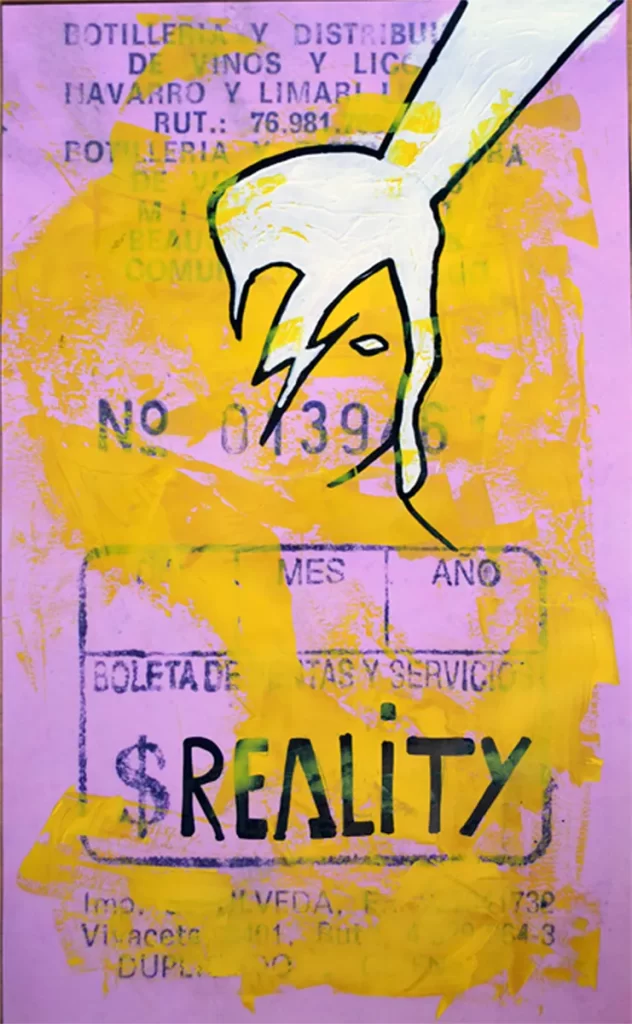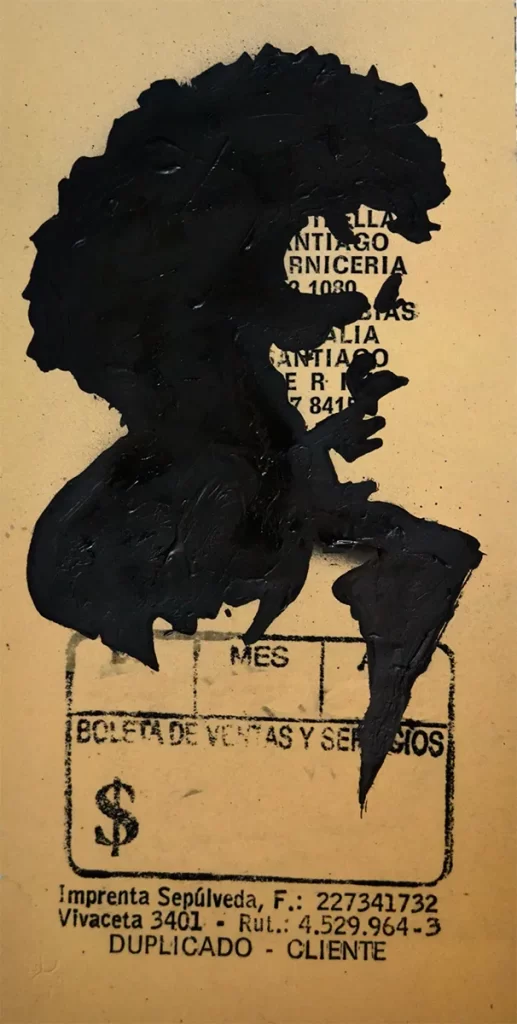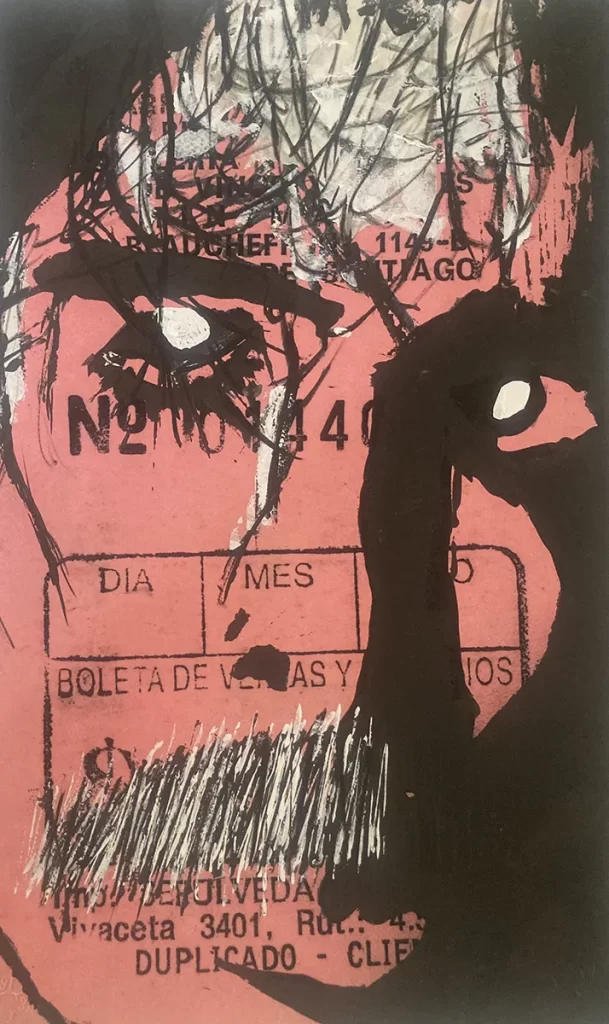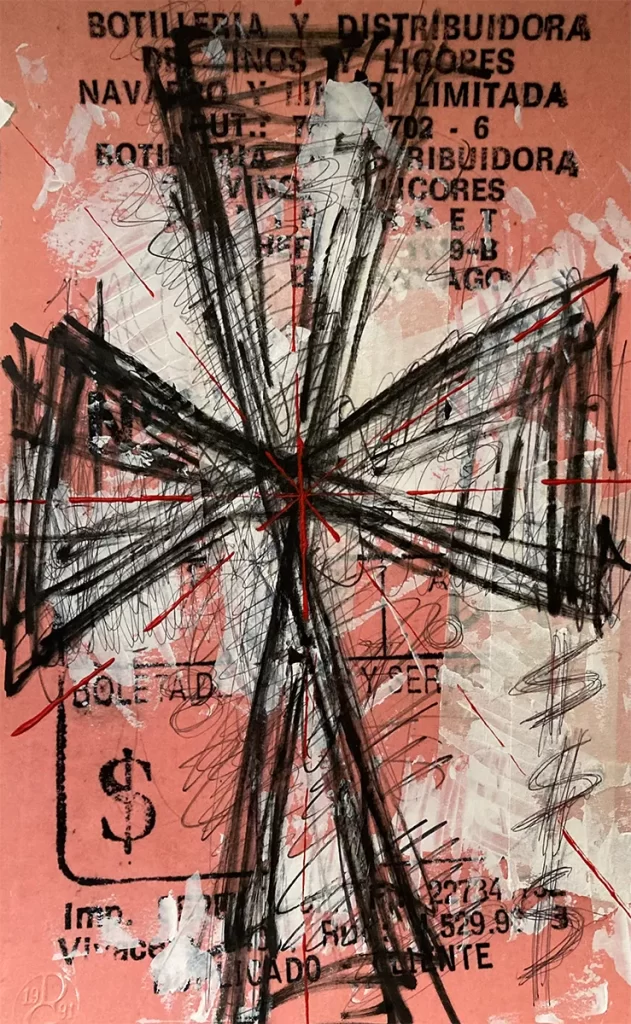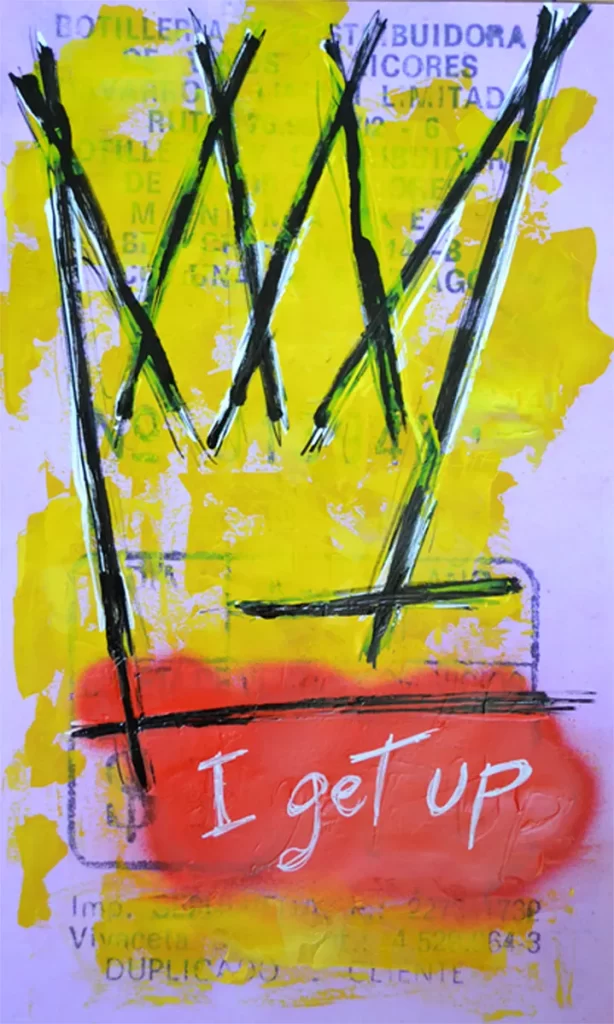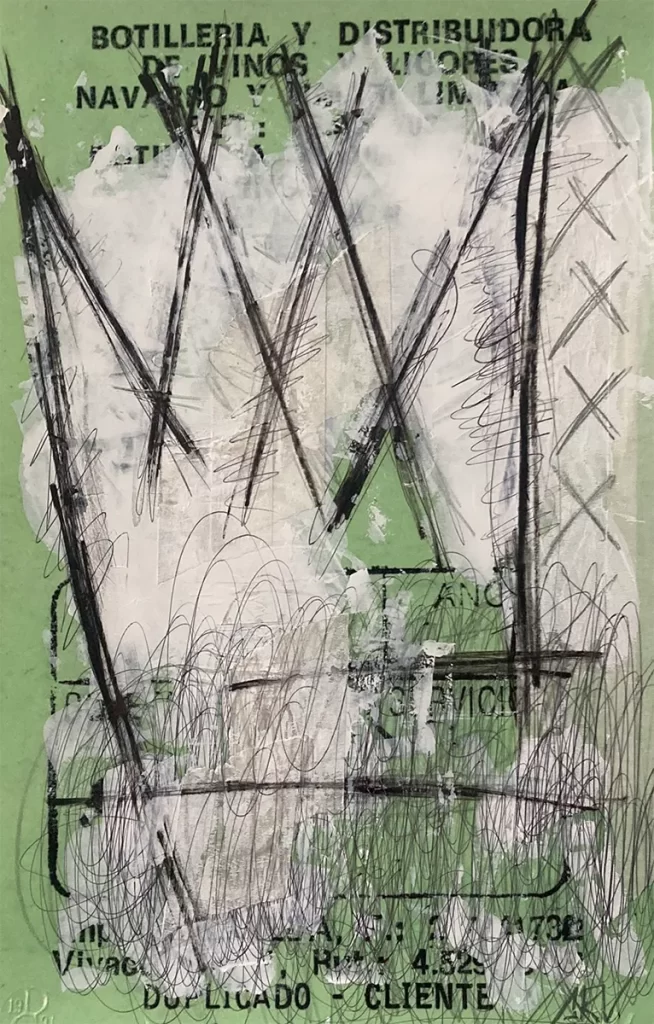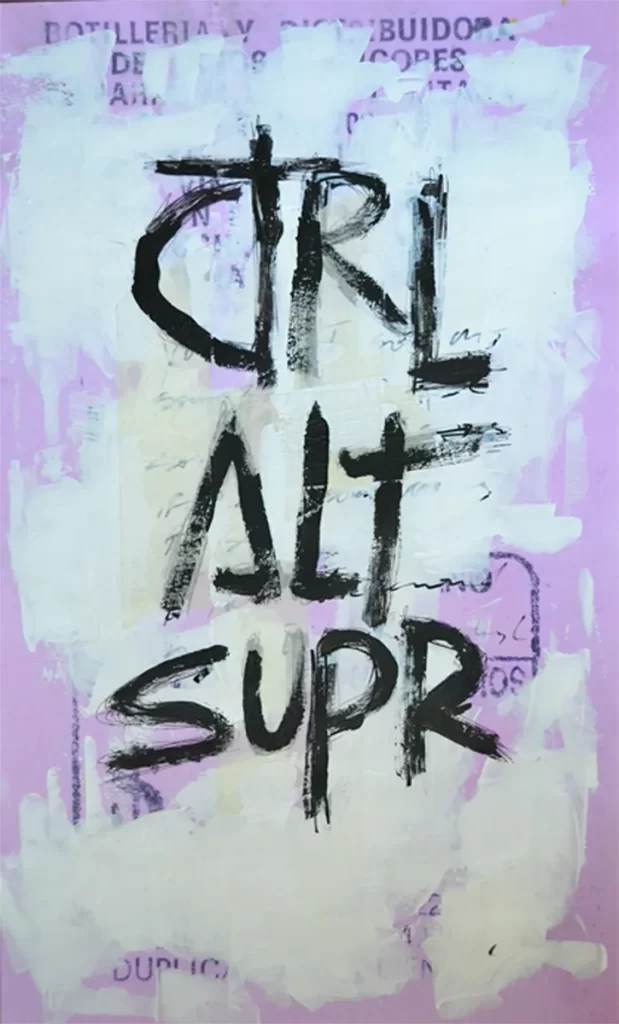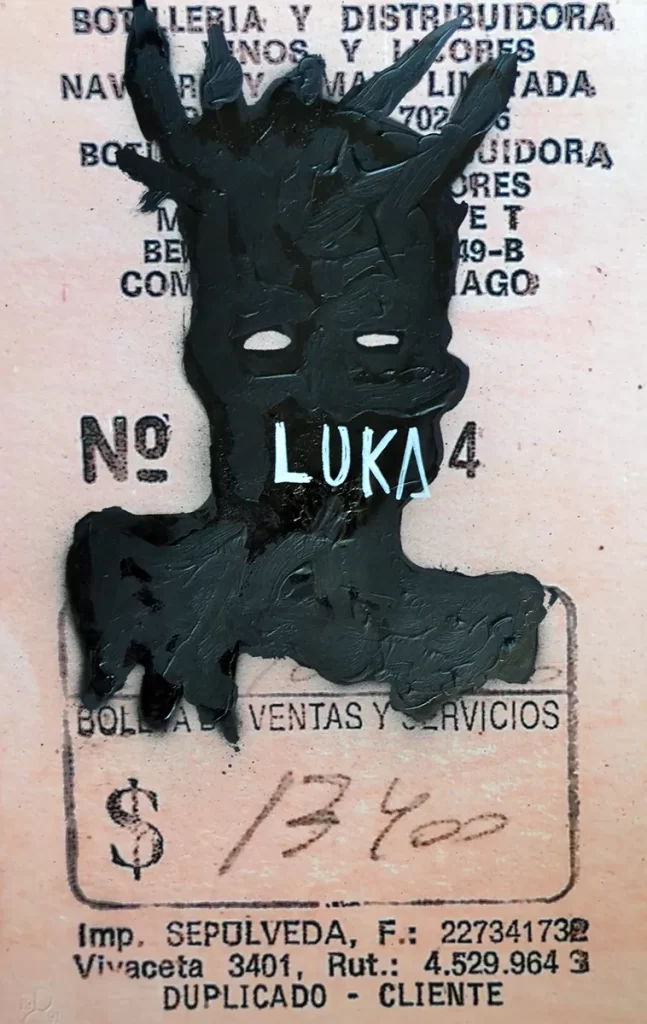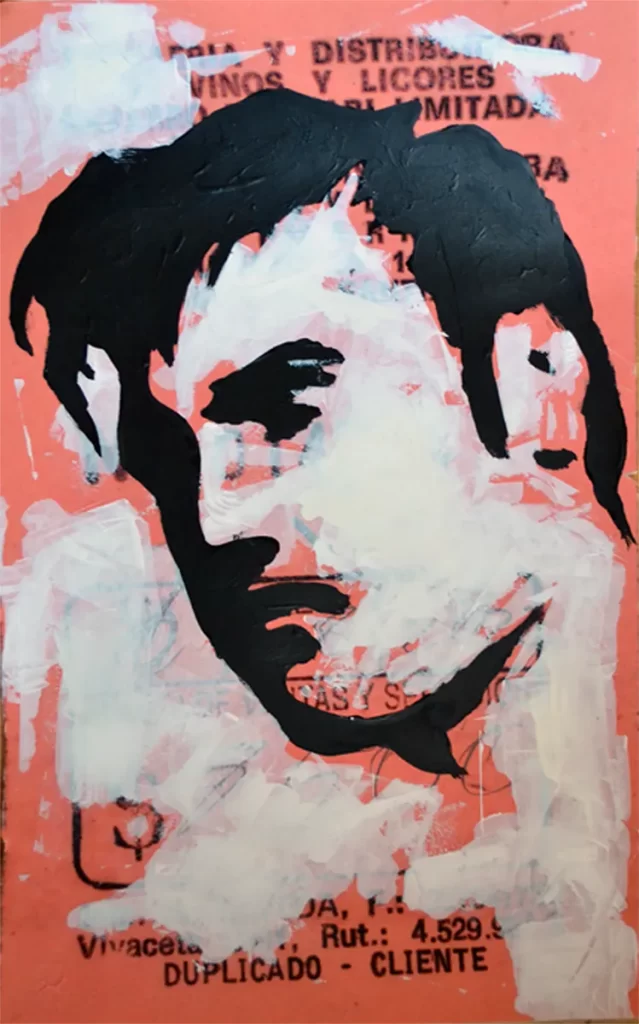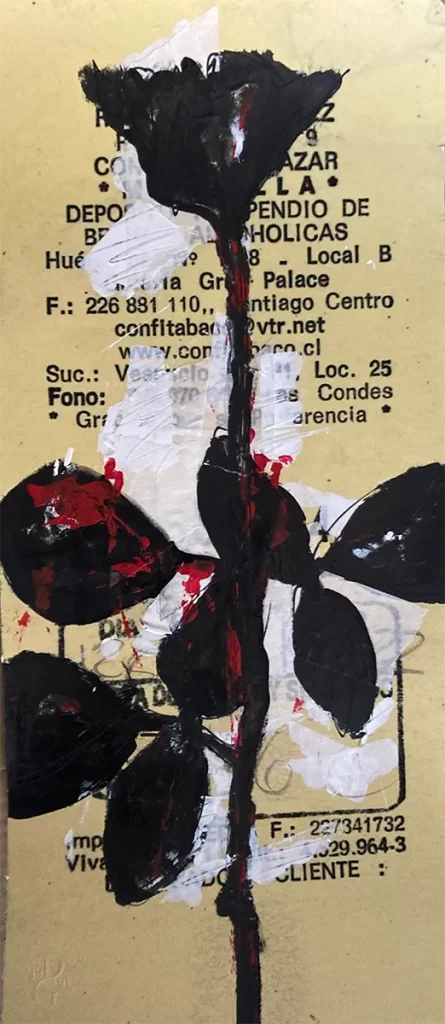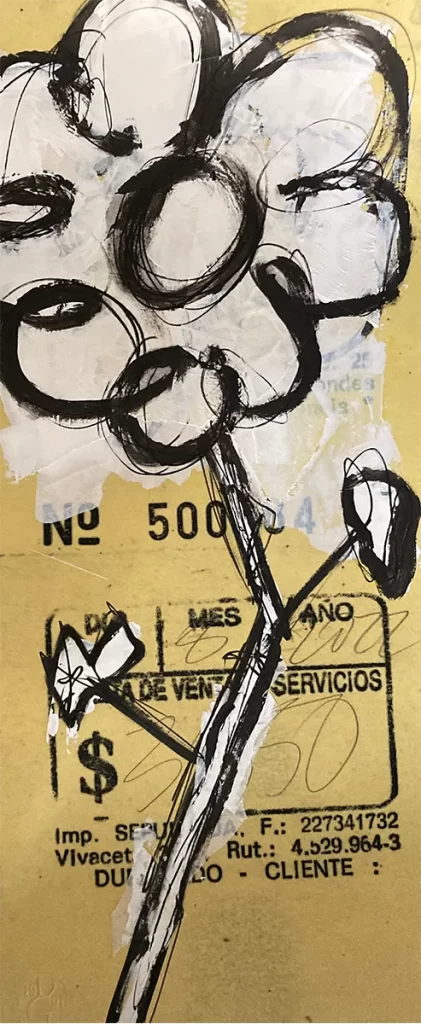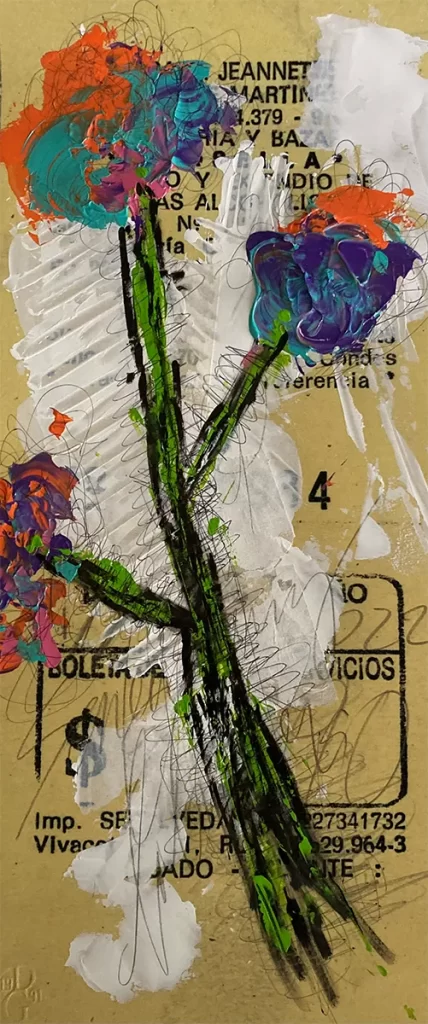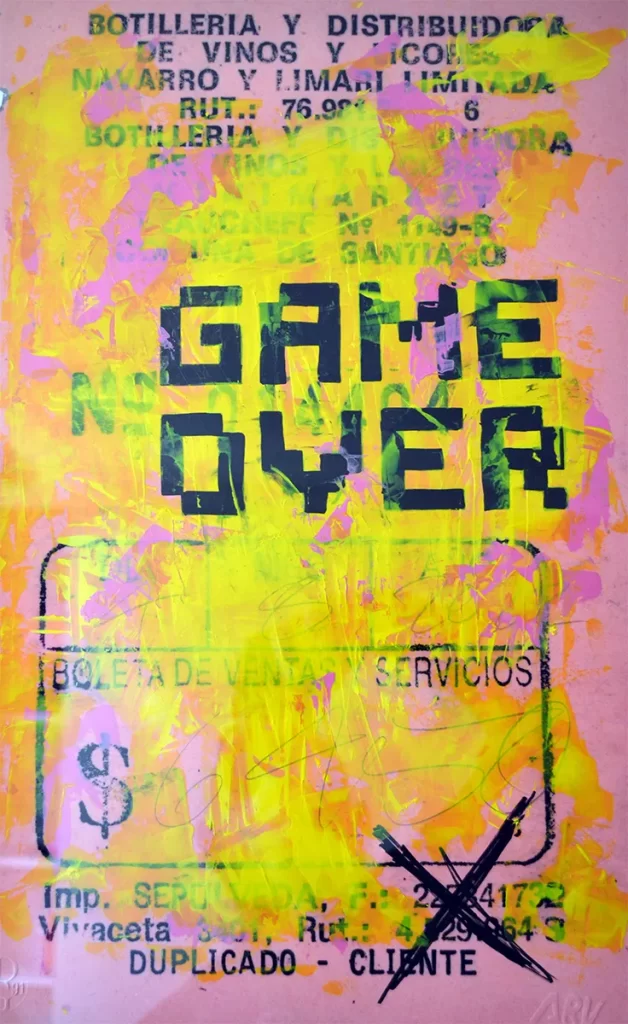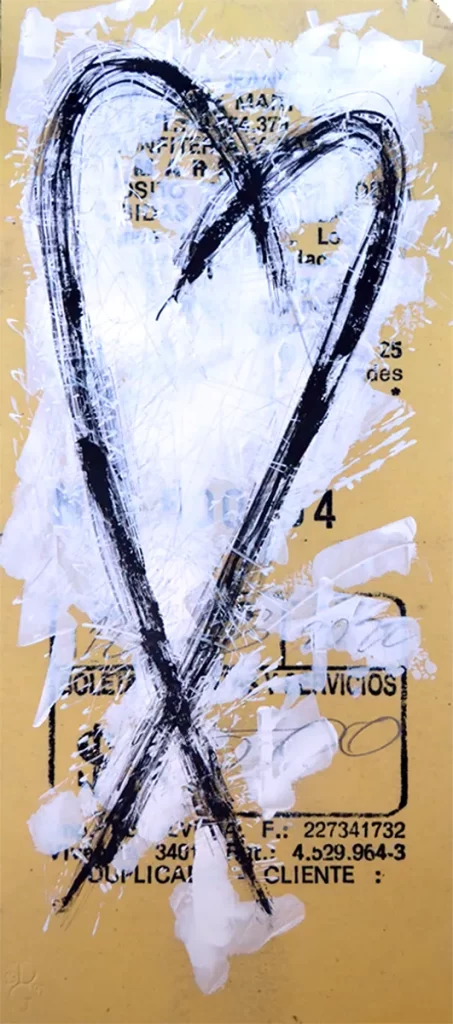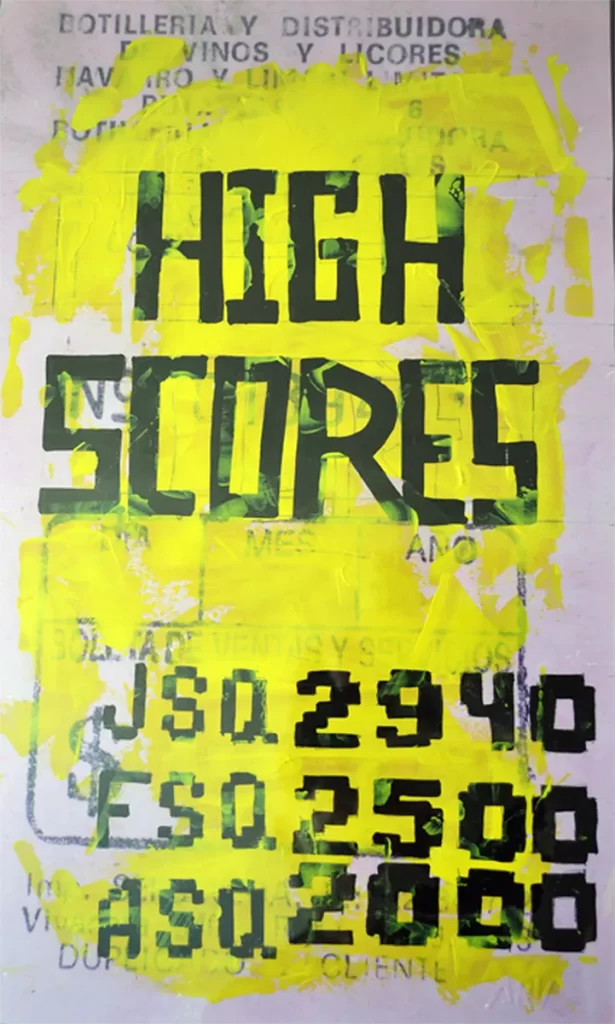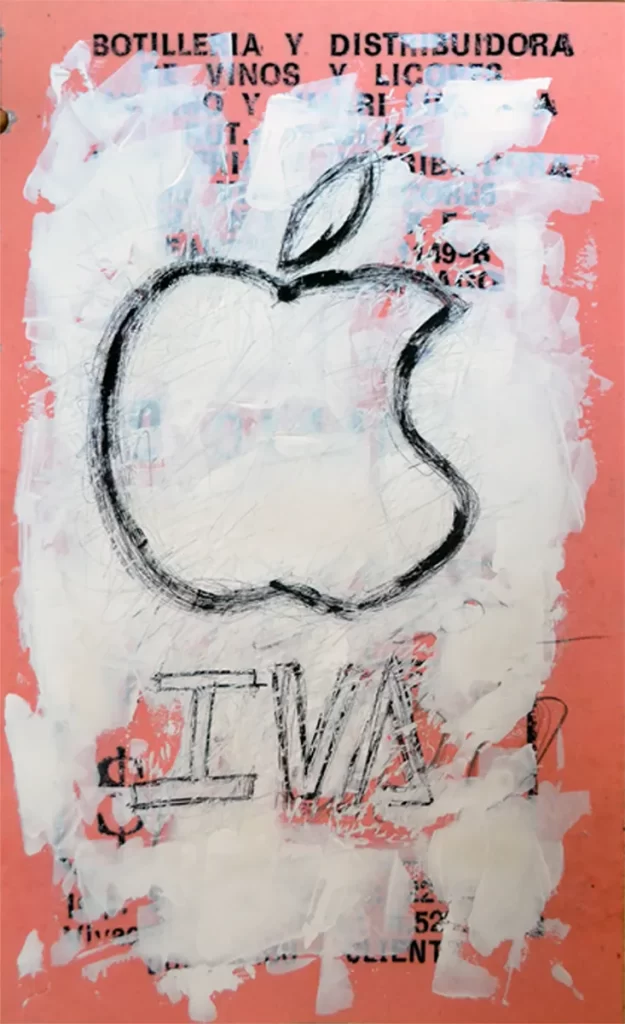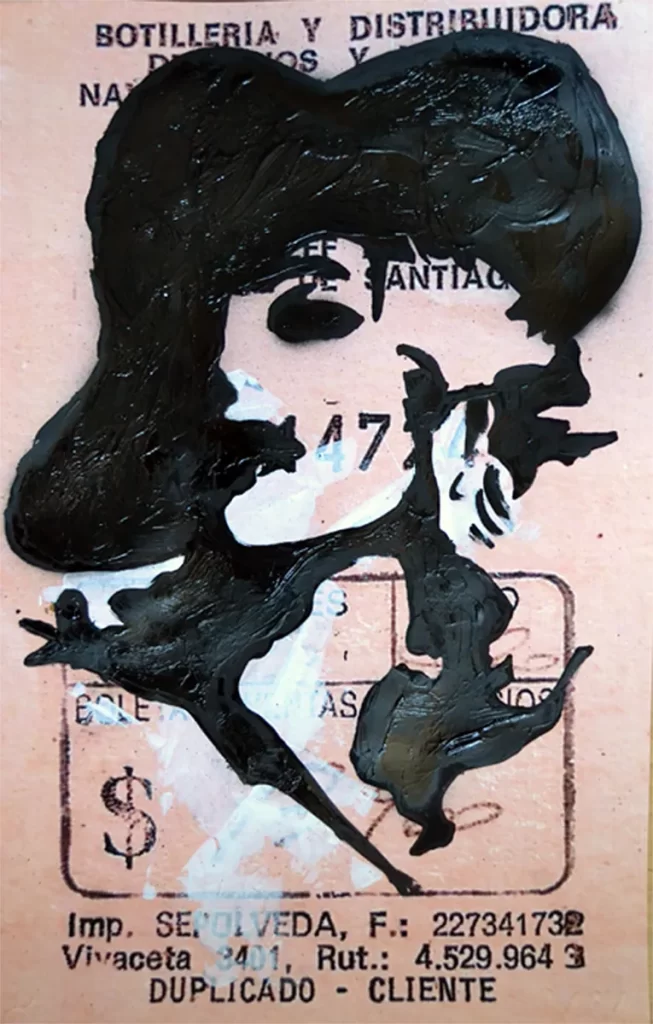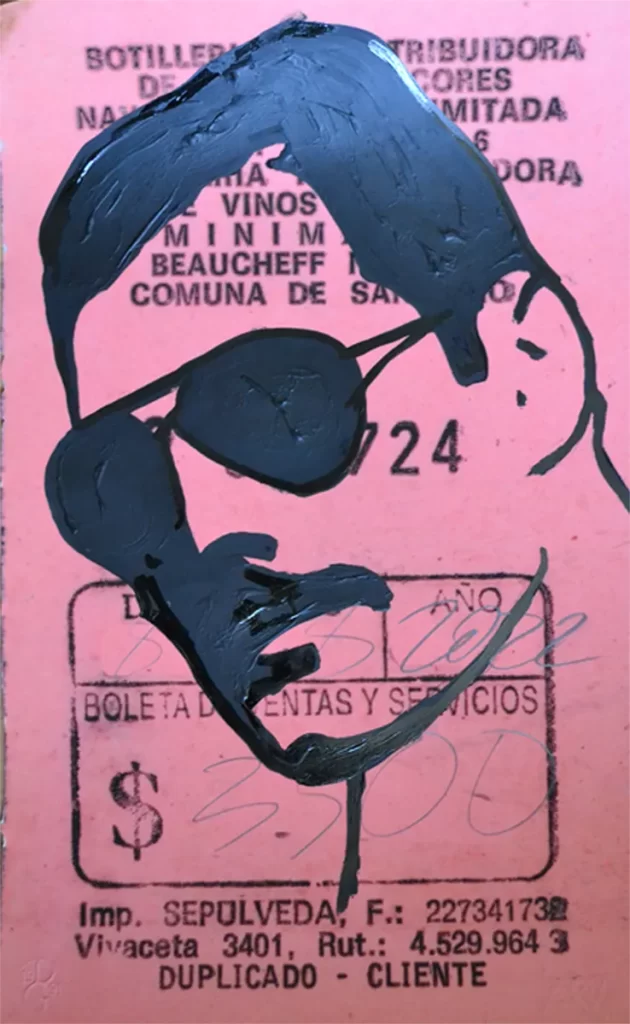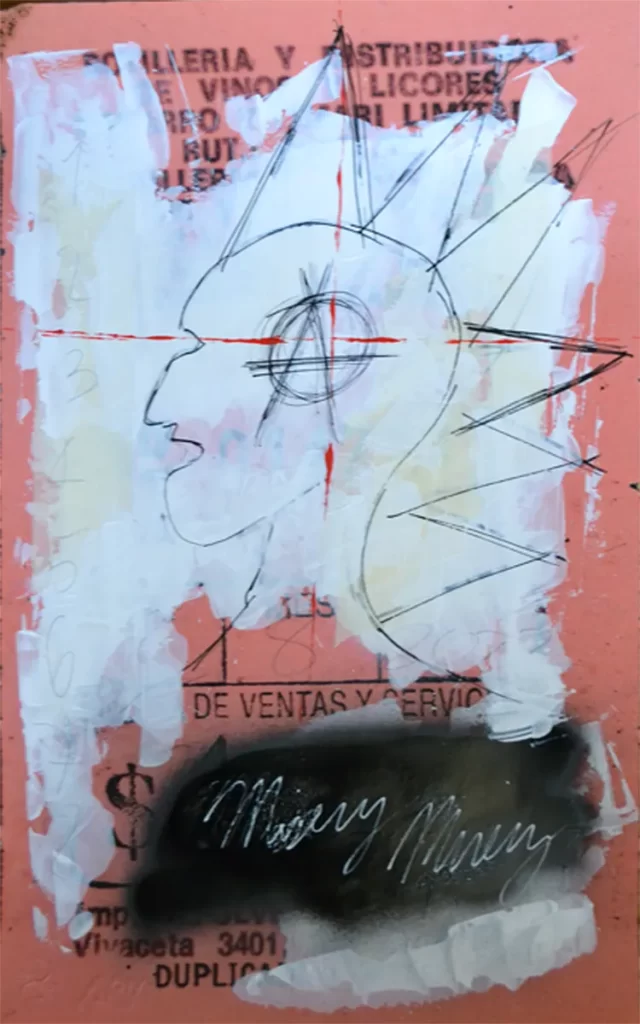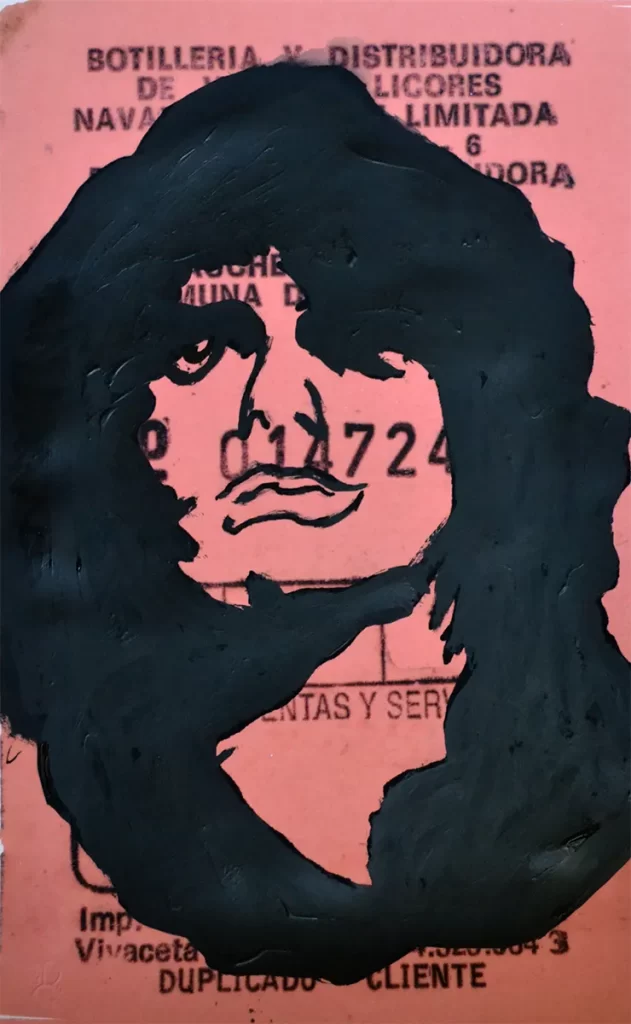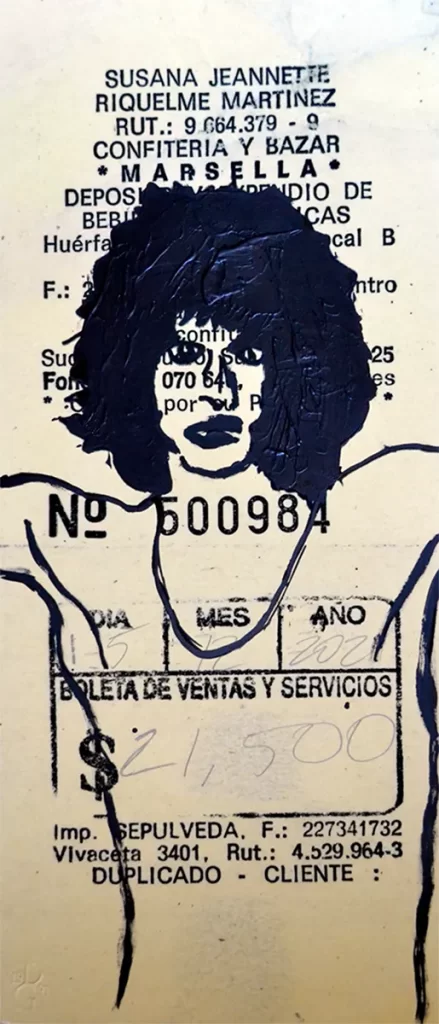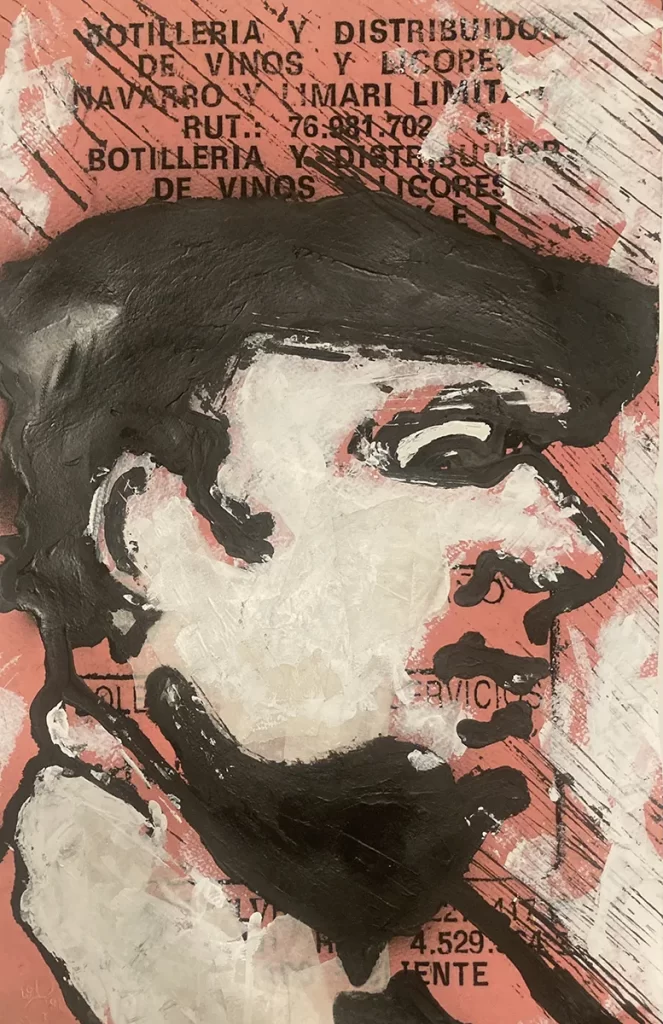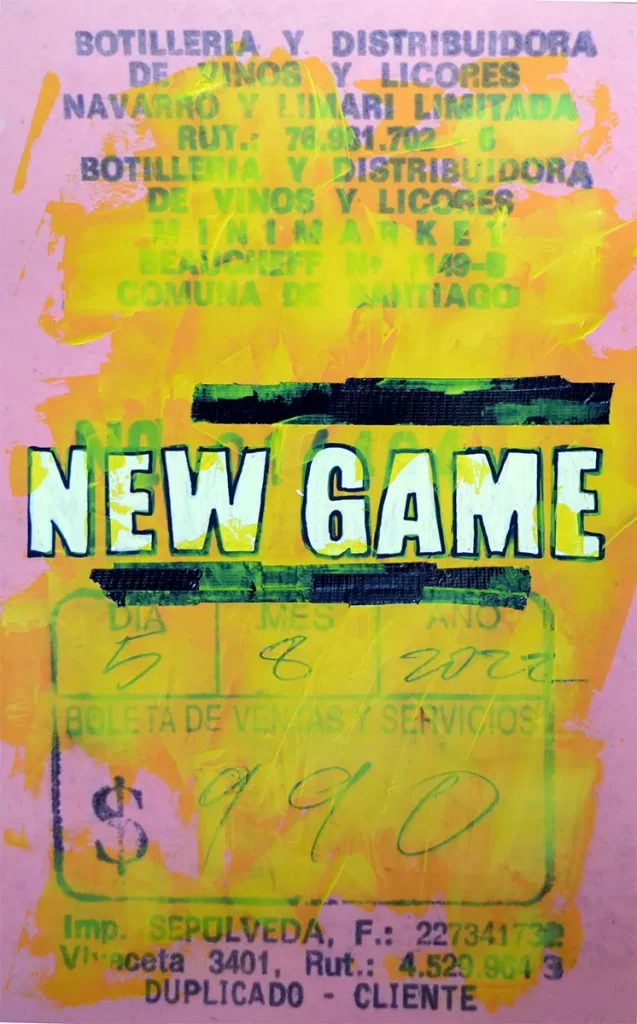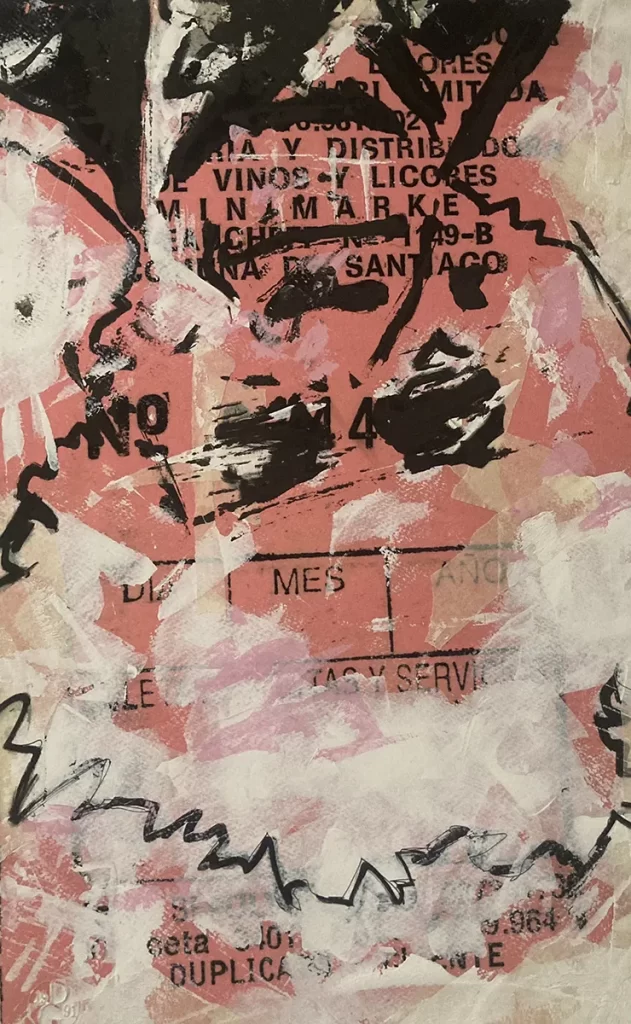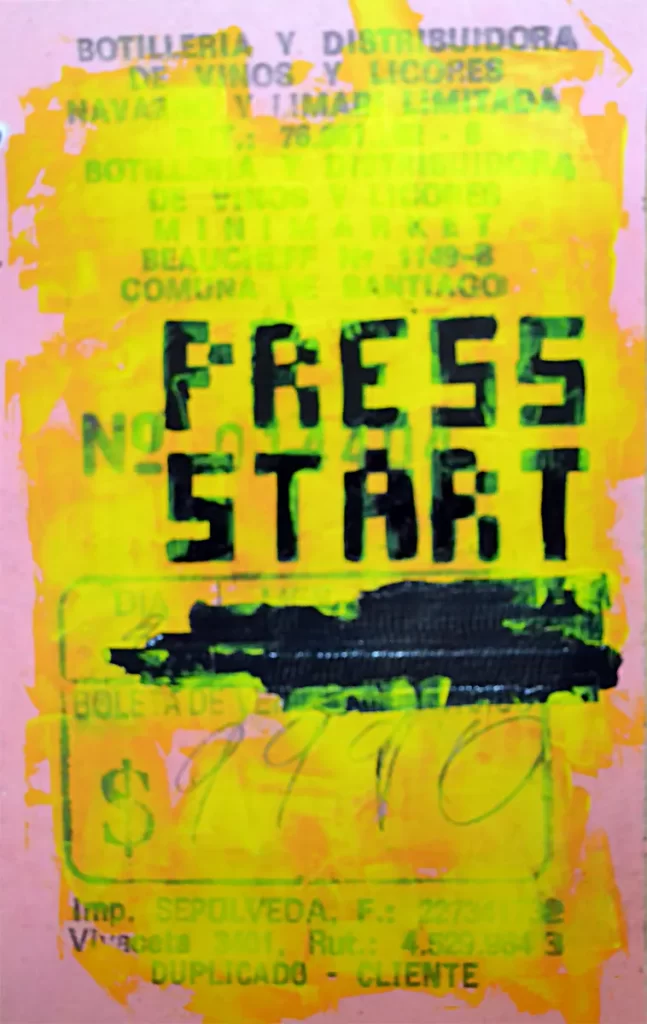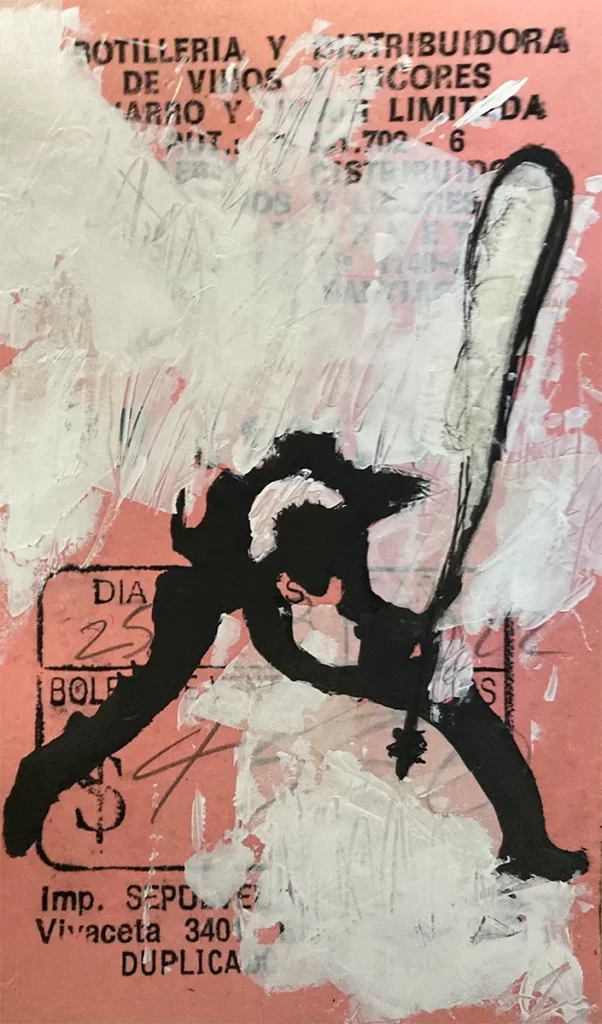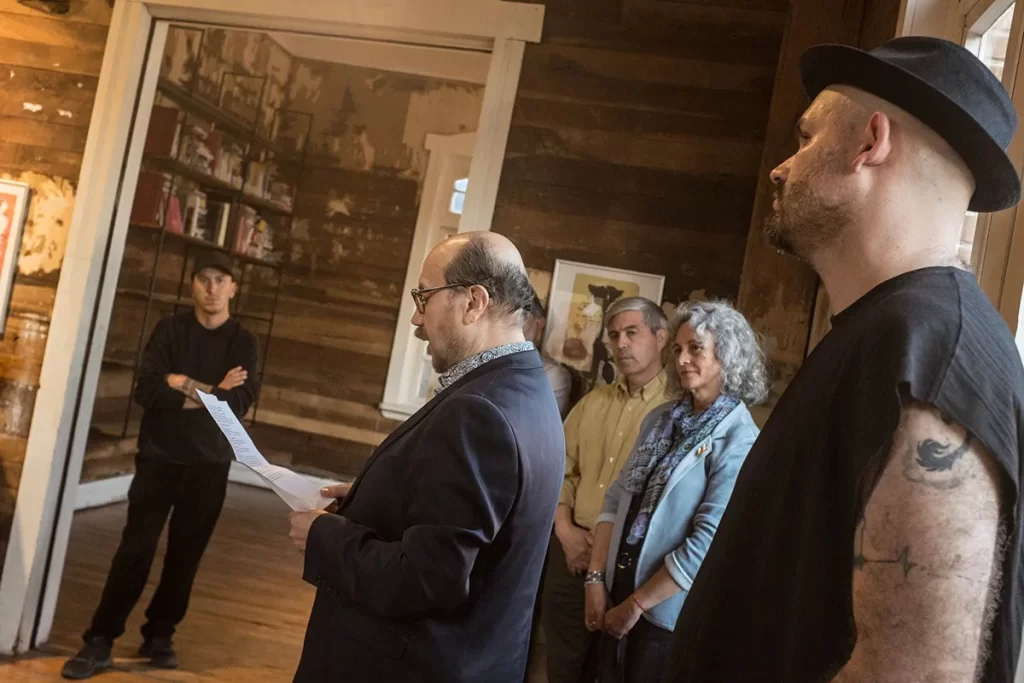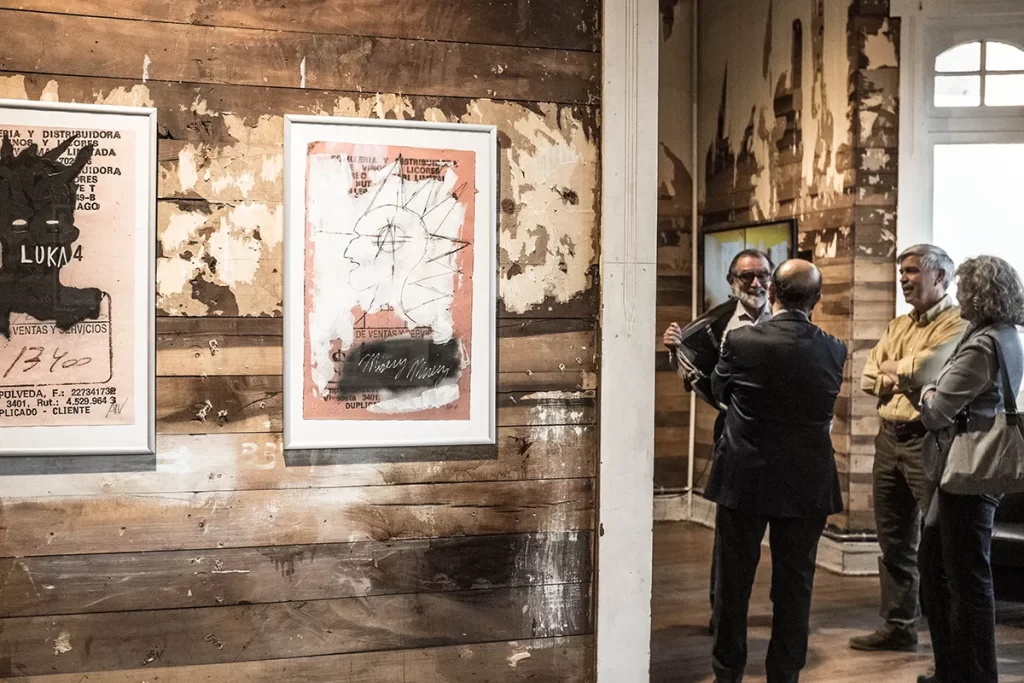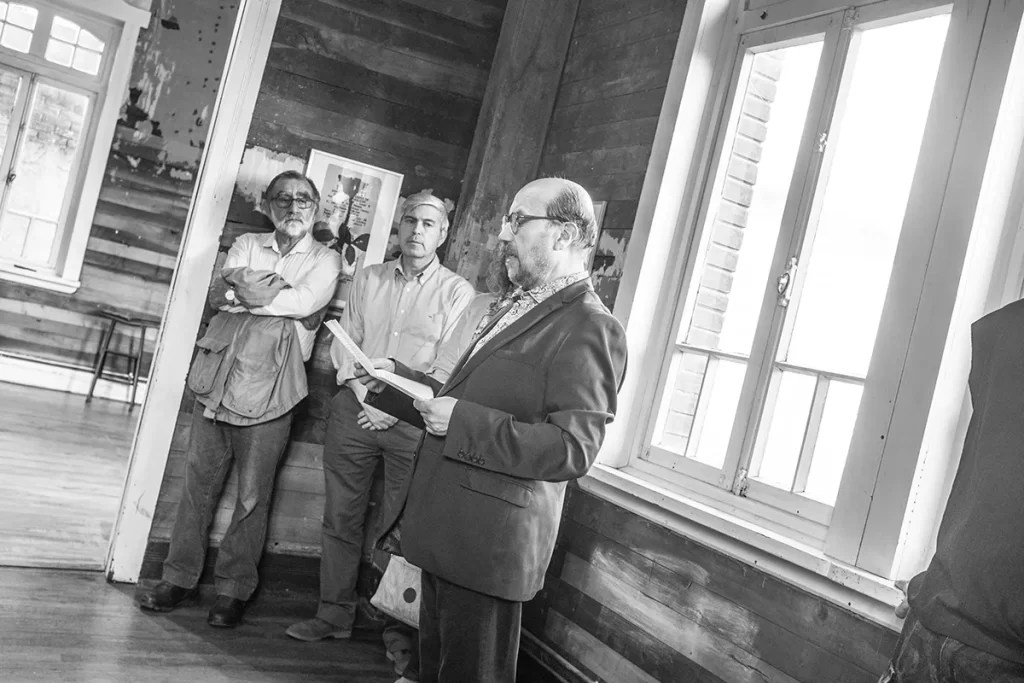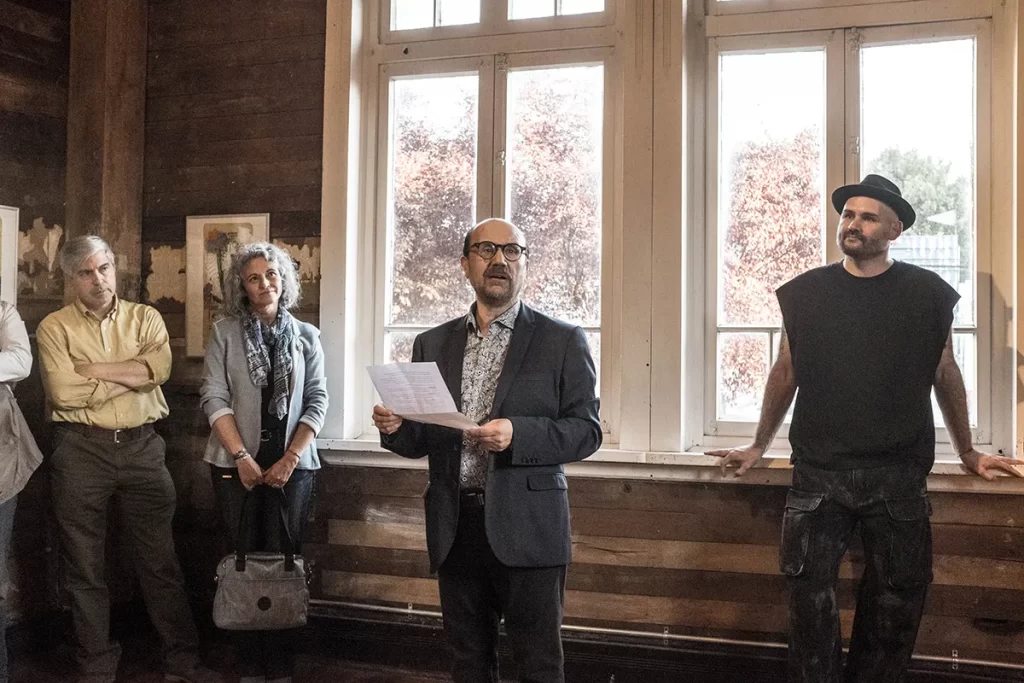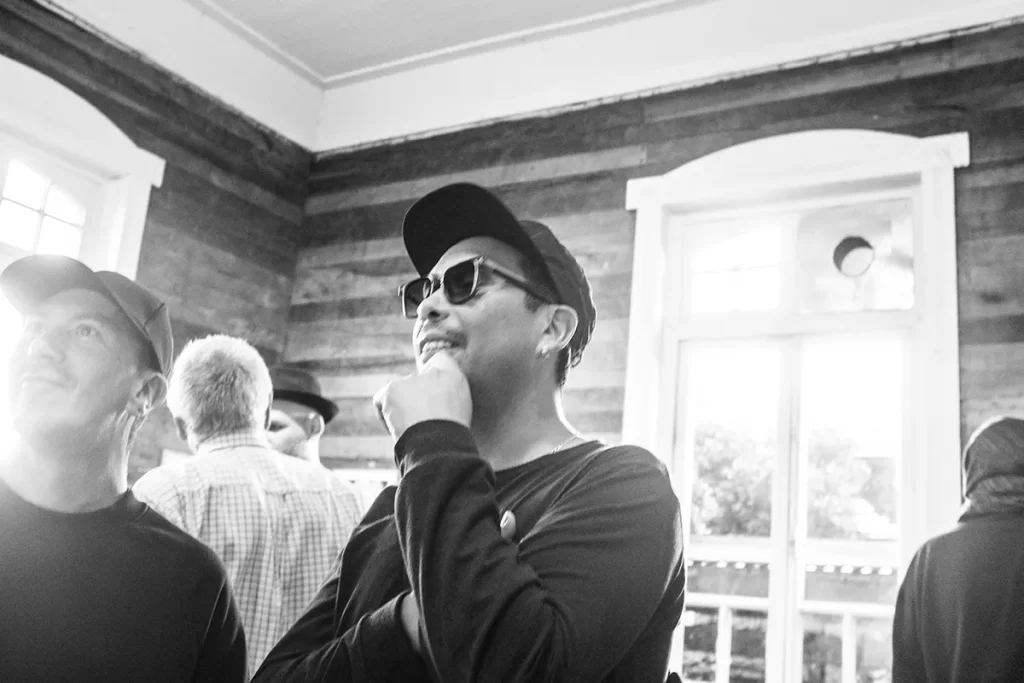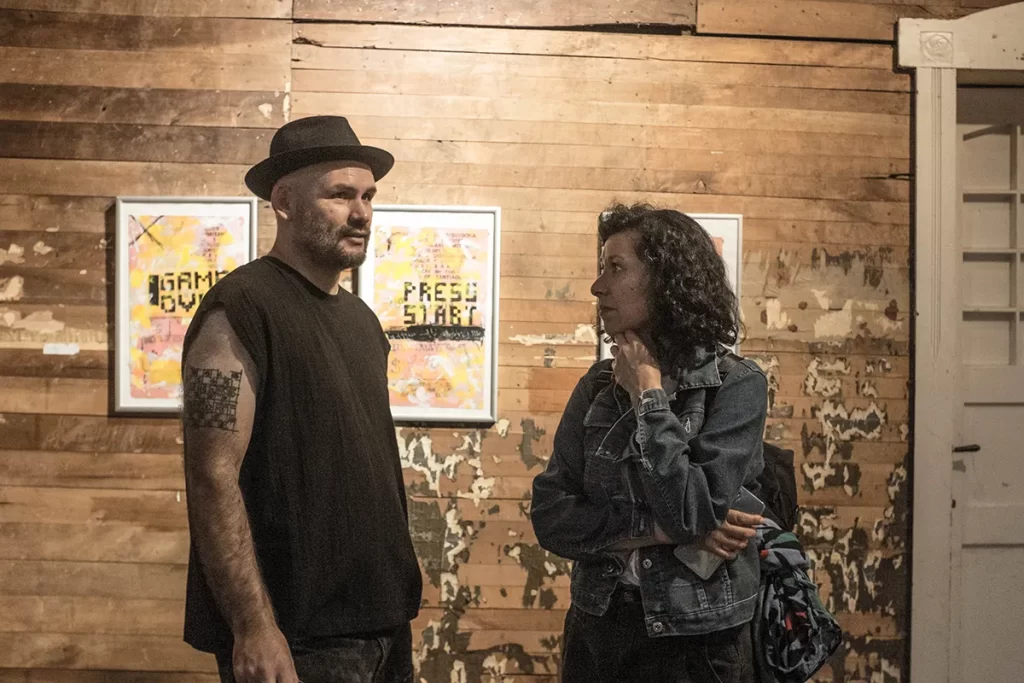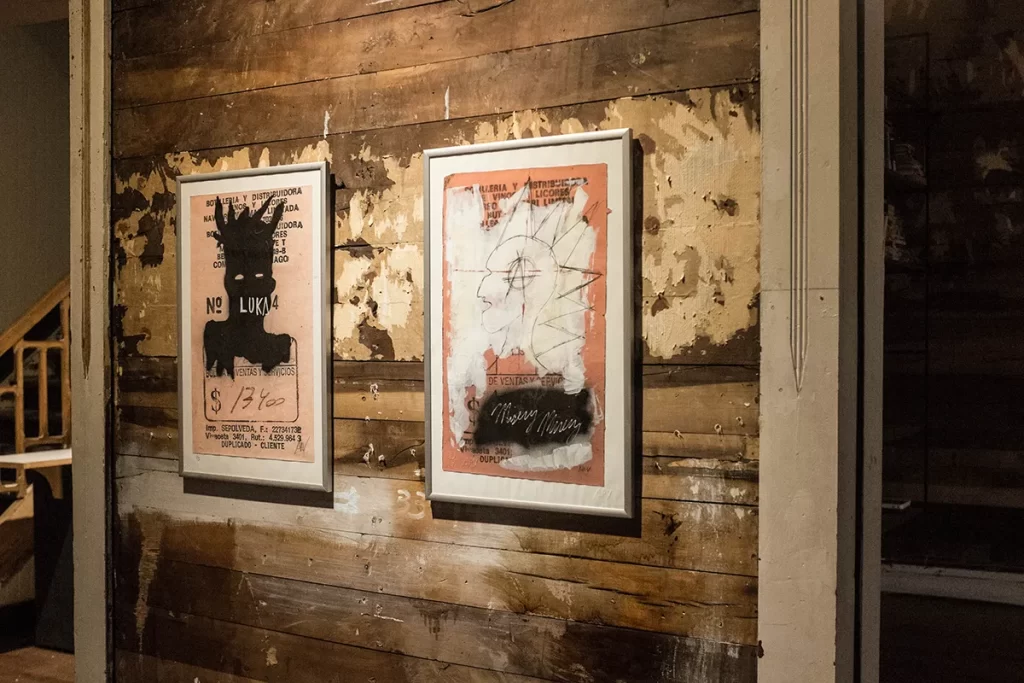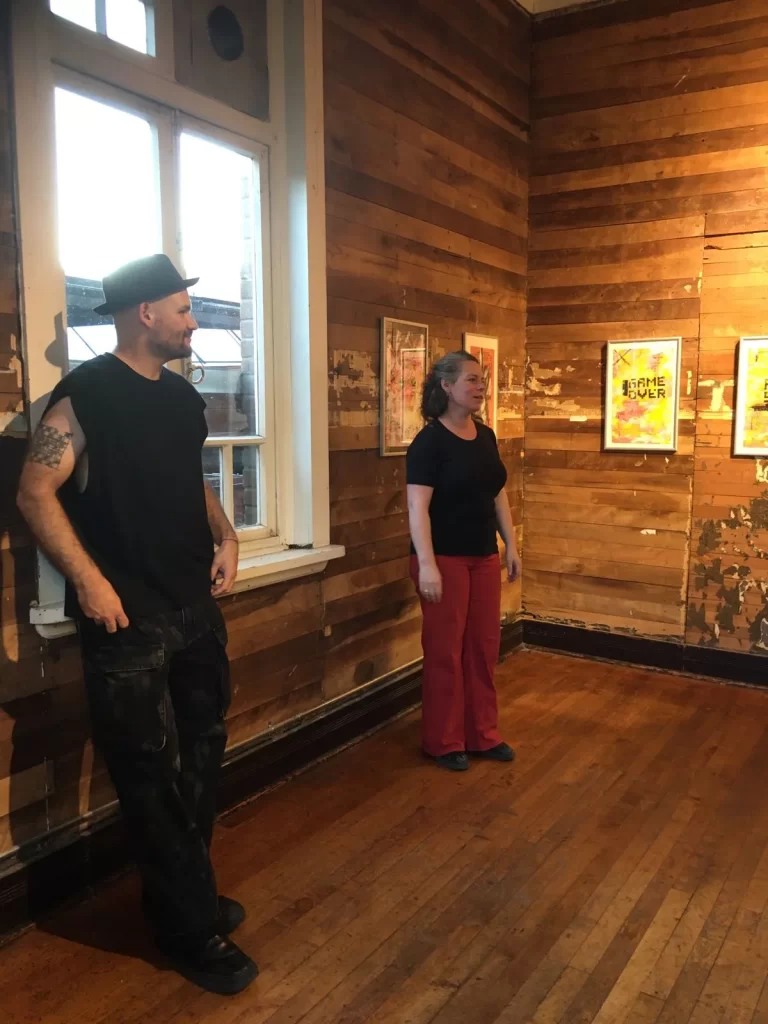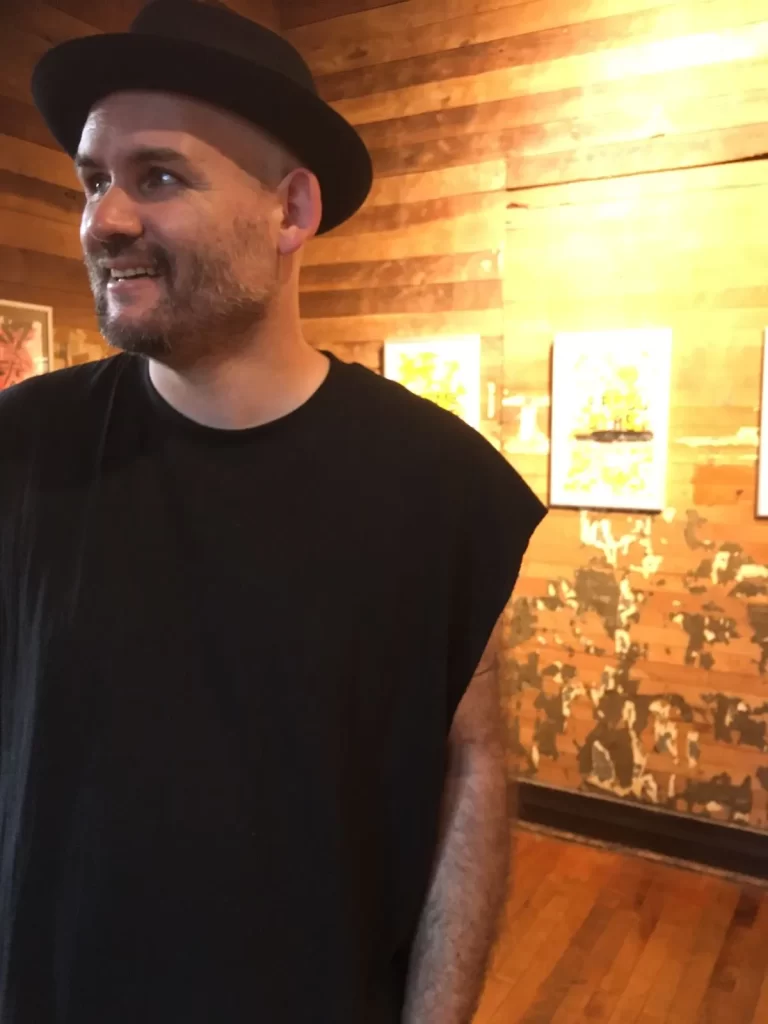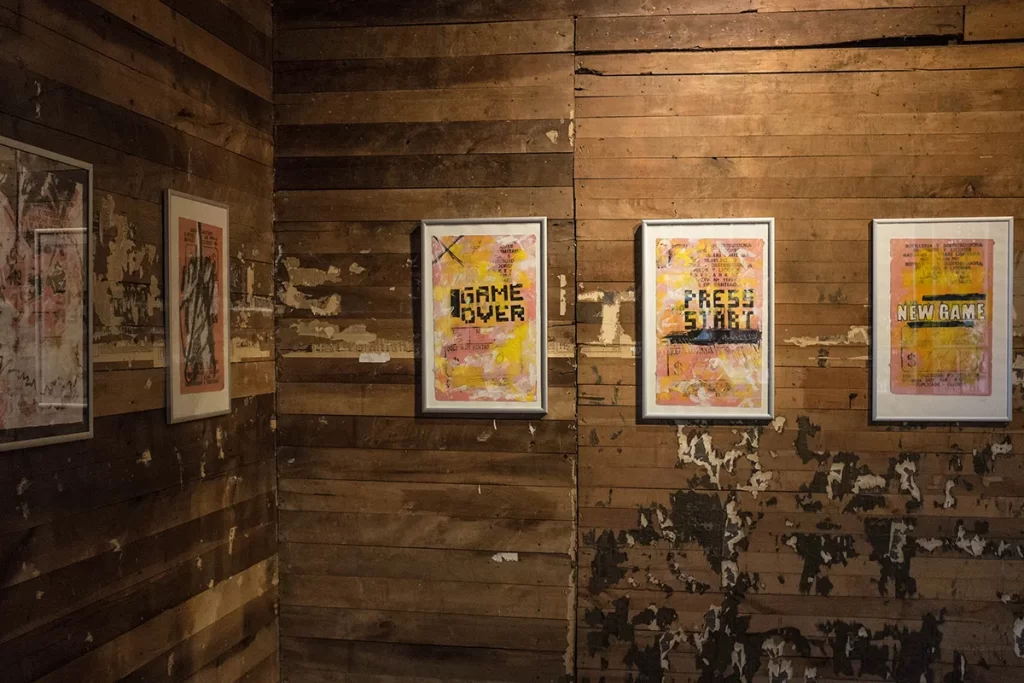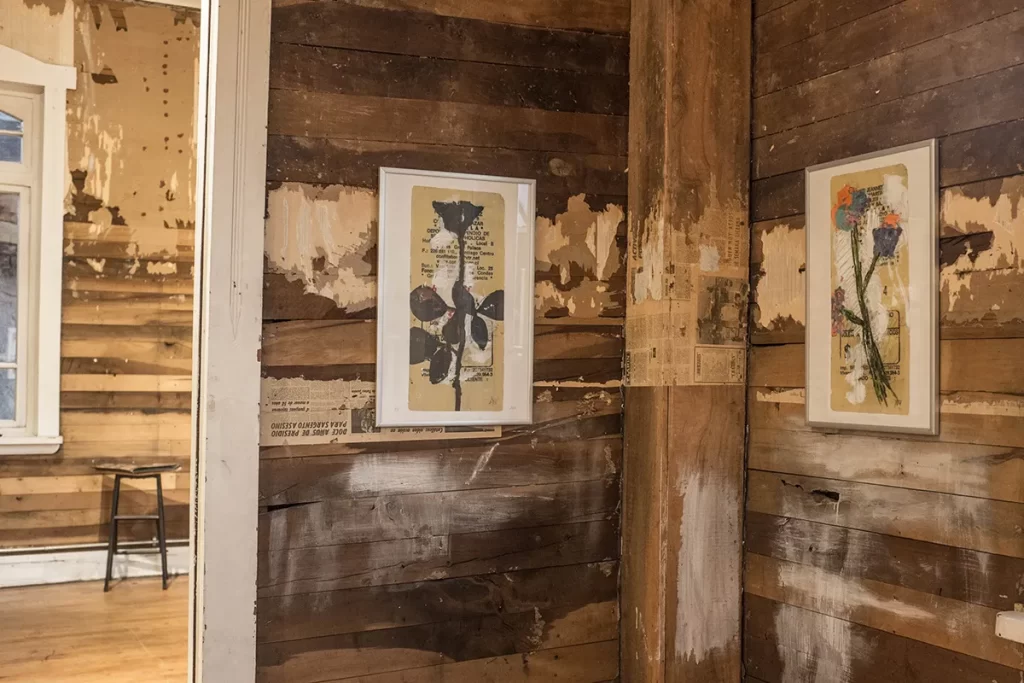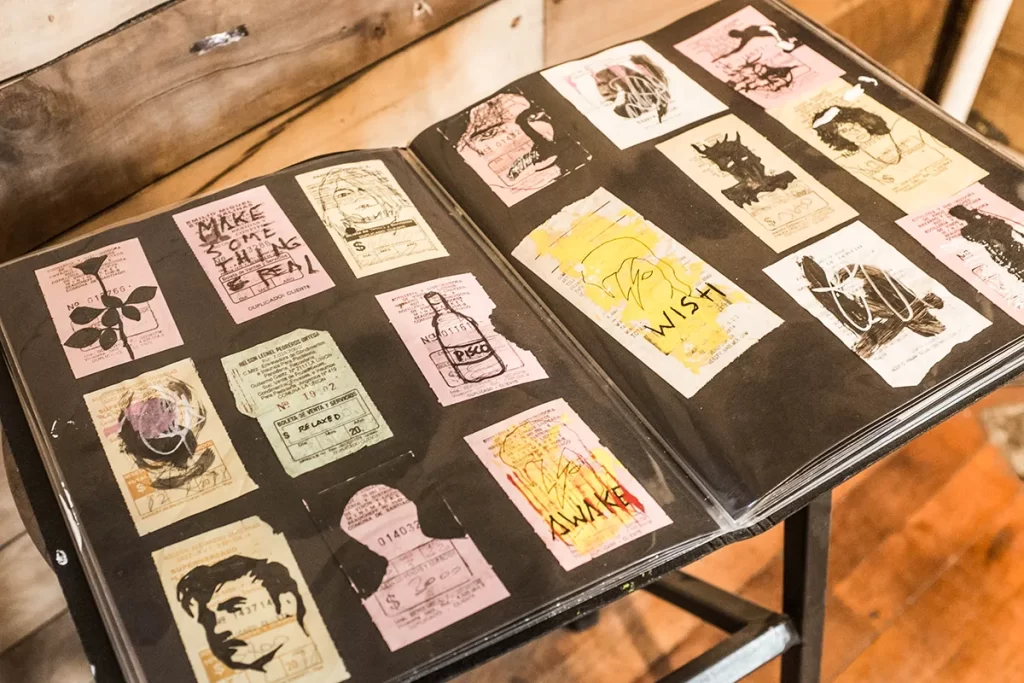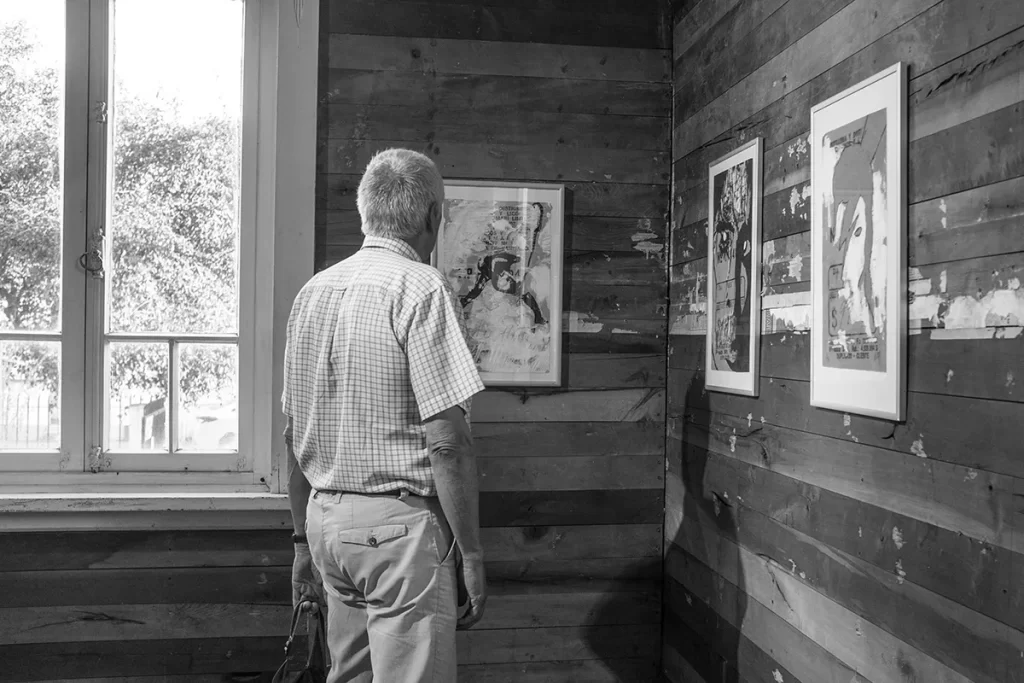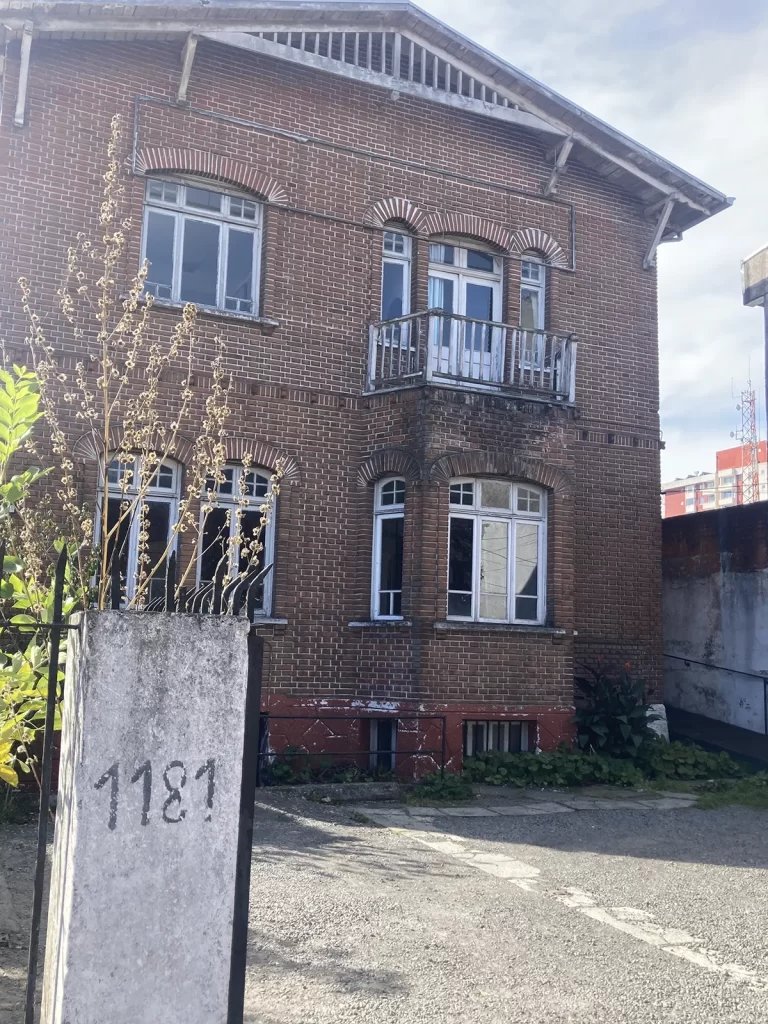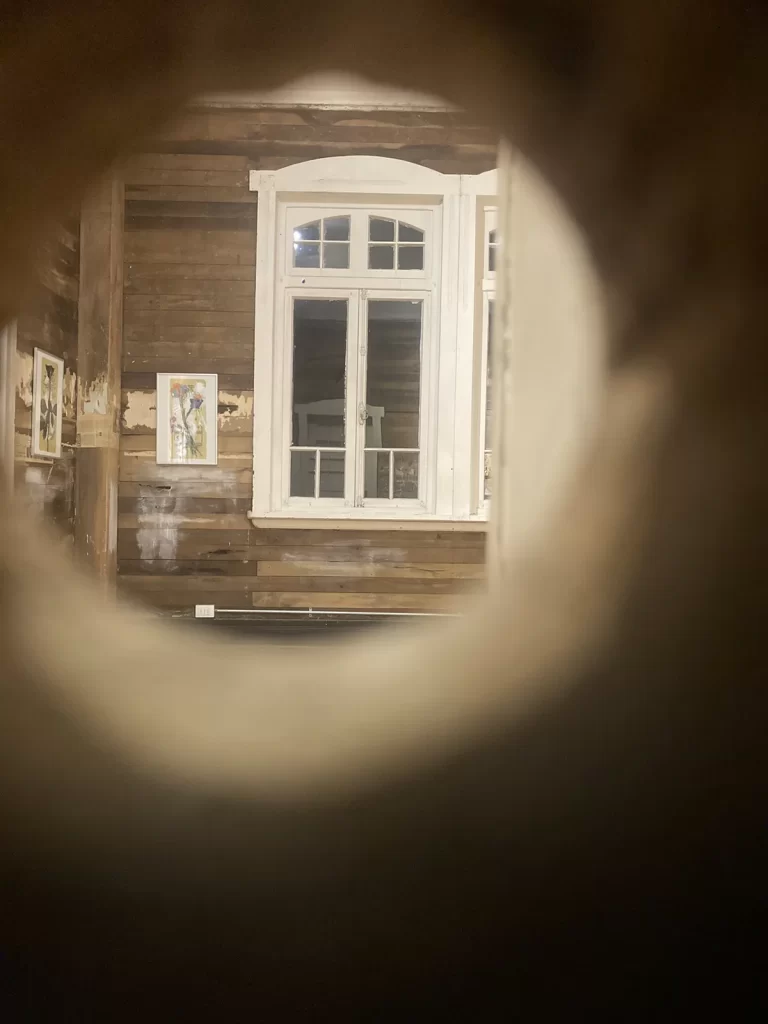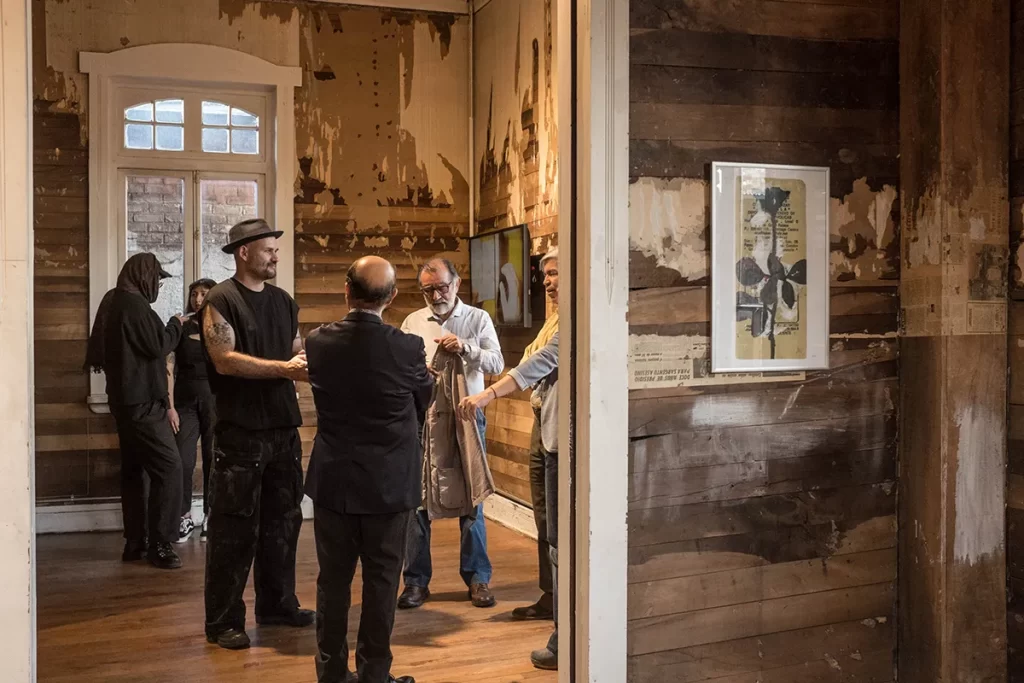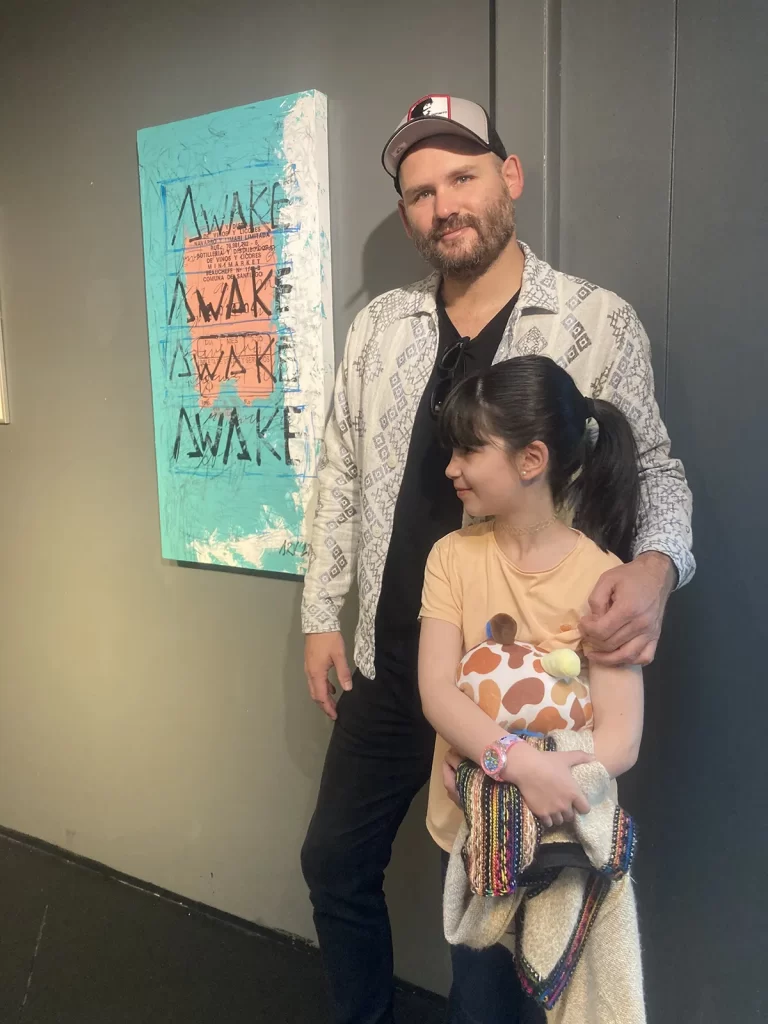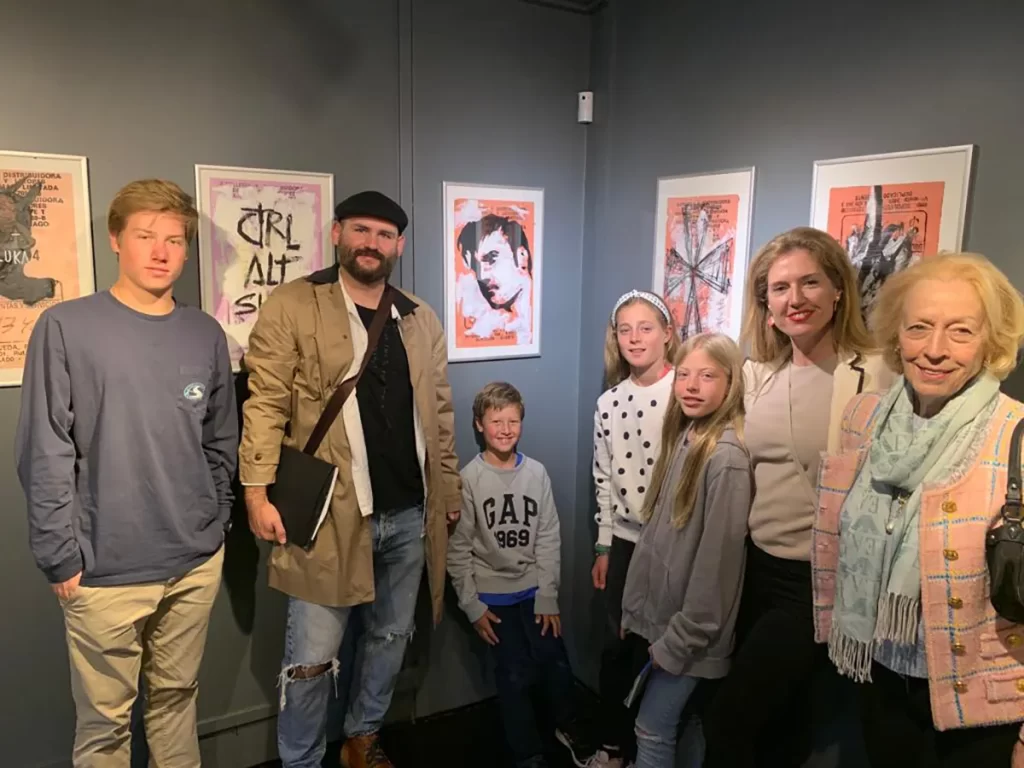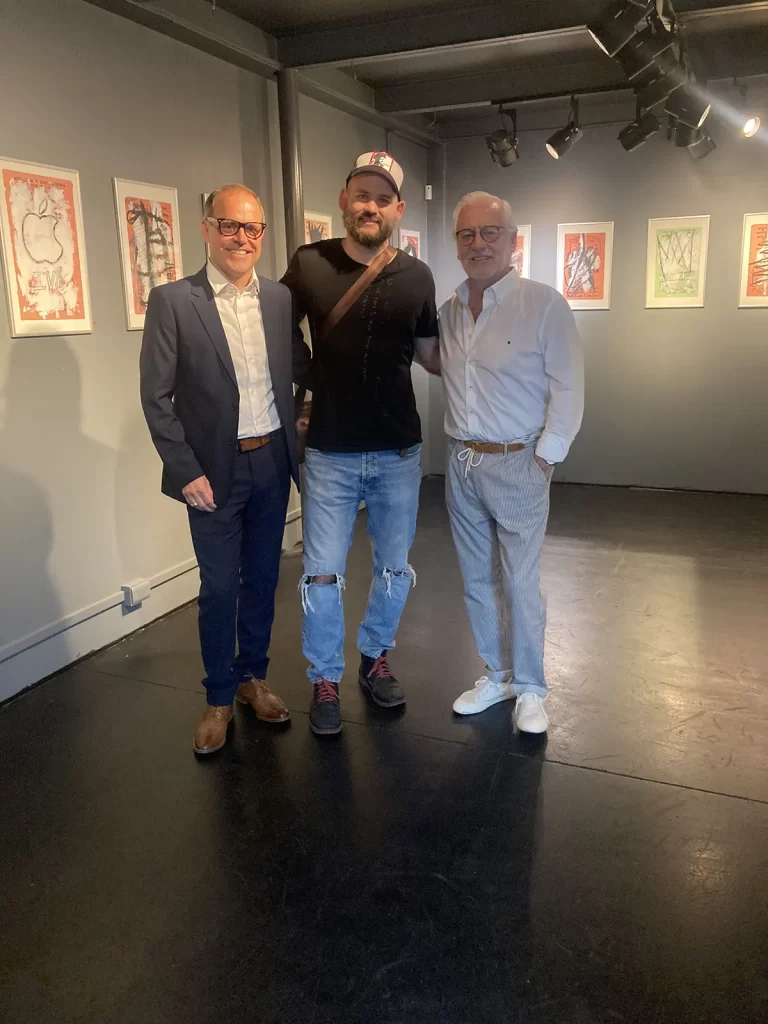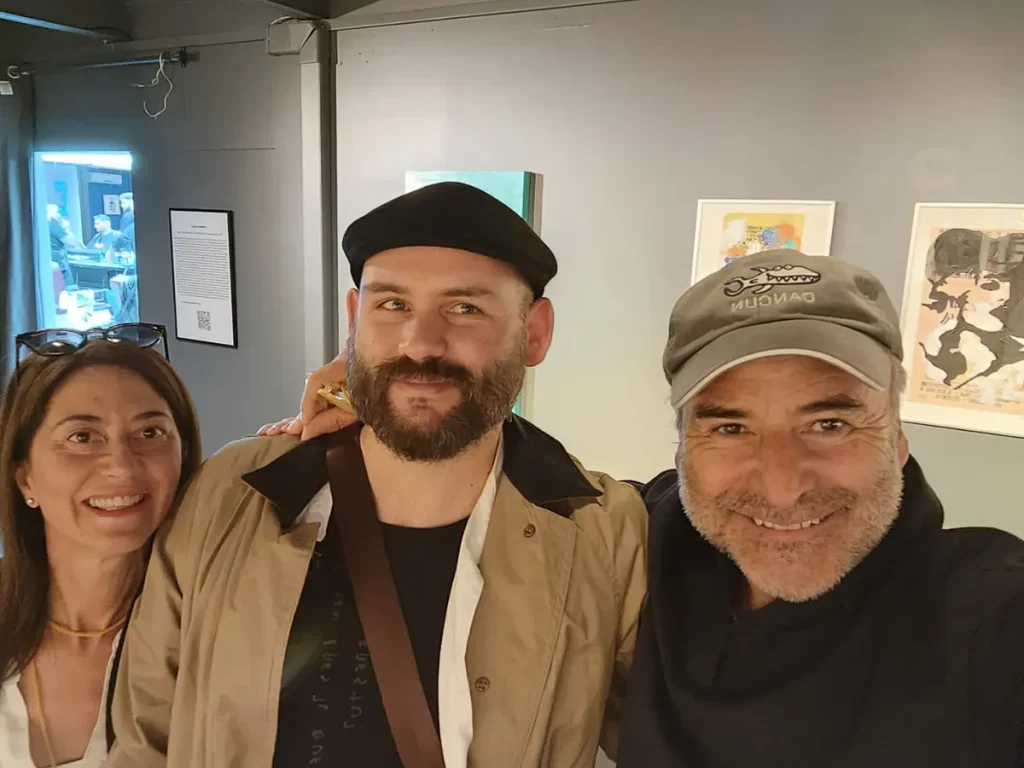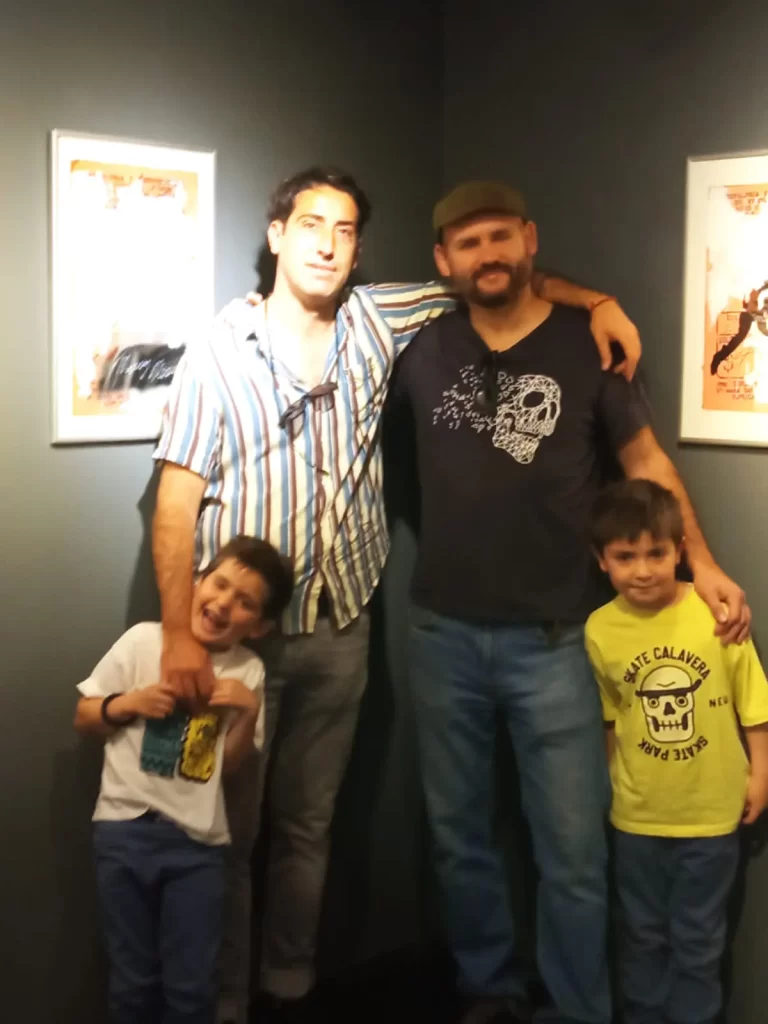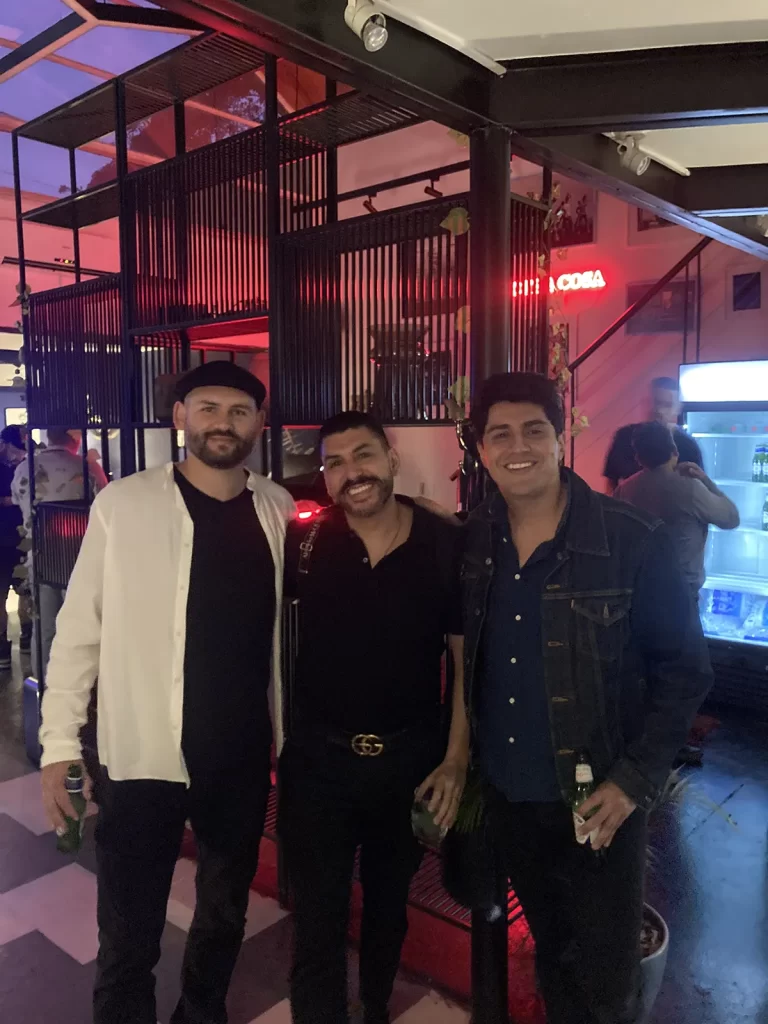BOLETAS 2009-TODAY
CURATORSHIP
Dr. Gonzalo Leiva
The exhibition is articulated from plastic entries that unify a tradition of artistic intervention and, at the same time, a desire to give importance to trivial papers, service receipts, as was the custom before the dematerialization of paper receipts in our country. Today, these receipts, intervened and unified through a practice that simulates urban stencil, seek to interrogate us under silhouettes that recall the resources of artists and singers. Indeed, the creative provocation of the artist Andrés Rakos takes us back to these icons and materialities of the past in a vivifying and disturbing present. In fact, Andrés Rakos’ artistic gesture brings freshness to figures from the musical world of yesterday, from video games, the advertising and computational world, as well as to these lost papers that one unexpectedly finds in drawers, bags, and stored packages. In effect, we move from surprise to the articulation of an artist’s essay, originally located in sketchbooks, they move to indicate the search route along with a marked provocative sense of his proposal through aggressive coloring or expressions made to solve the game. His work is accompanied by numerous phases that, in the history of art creation, give it an experimental sense. Similarly, in the 1960s, art supports have had various shifts, from galleries to streets, from canvases to interventions, from sketches to any feasible support. These shifts come from a fundamental diatribe: the limits of the artistic explicit their absence of limits. Something had been gestated with the historical avant-gardes of the early 20th century because within the functionalities of cubist and dadaist collage, by uniting languages and supports, they mixed heterogeneous worlds. Later, in the Pop Art of the 1960s, Robert Rauschenberg’s search gives a new category to lost papers, as they attest to a belonging and a destiny of their own. For the same reason, when the artist, Andrés Rakos, lucidly created an artistic collection of associated receipts, he was intuitively investigating the consolidation of a language that would convey his apprehensions about art. Thus, a somewhat systematic familiar desire was outlined, since the intervention of paper receipts presented an unconscious action by giving value to the forgotten, to what we do not observe. Thus, we have in this exhibition, a result as a system of receipts, as a generator of symbols and writings, which, just like the messages in the streets, interrogates us from existential desperation. Although, the next step of these works is towards the poetic passion of reality because it is precisely at this reflecting point from what has been misplaced that it indicates to us the most truthful and therefore, the most authentic. Thank you Andrés, for this artistic impulse that gathers lost sensitivities!
CURATORSHIP
Camilla Gilardi
GAME OVER, fin. Art is powerful because it is limitless: before it, the viewer travels with their mind towards unexplored horizons. GAME OVER, a term created to indicate the end of a video game, is now in global jargon used to signal the end of anything: a relationship, leaving a job, the interruption of an experience. And you, what do you see? Where does your imagination take you? After the end of something, what’s new around the corner ready to await us? Andrés invites the viewer to become one with his artworks, to understand the messages he wants to communicate while giving a personal interpretation of what they see.
